A
Hannah ADAMS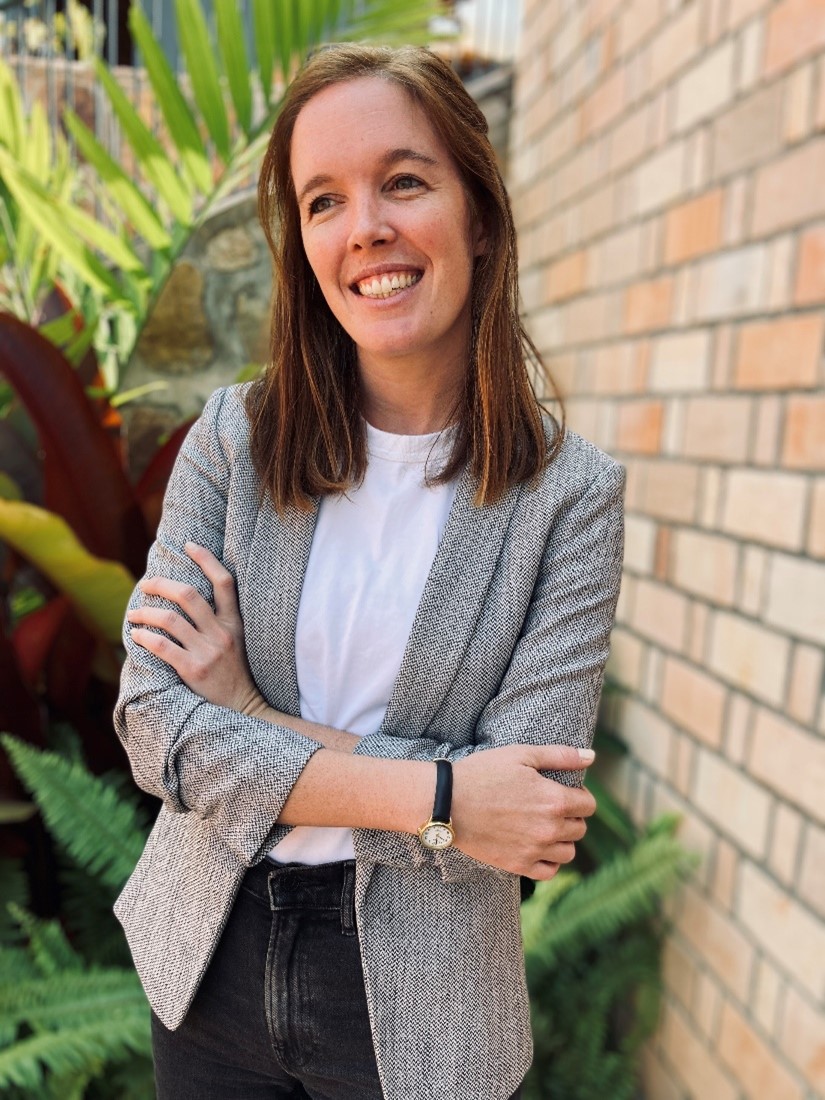
Head of Operations of Harambee Youth Employment Accelerator, Rwanda
Hannah Adams oversees the Harambee Youth Employment Accelerator’s work on the ground in Rwanda, focused on applying system change solutions to the youth unemployment challenge. She brings years of experience in advocating for and implementing scalable solutions to social & political issues, previously managing wide-scale voter turnout and climate change campaigns in the United States. Hannah holds a degree in Political Science from Wesleyan University and resides in Kigali, Rwanda.
Raphaël AGBANRIN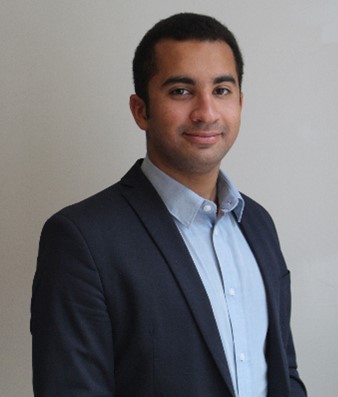
Investment Officer, BlueOrchard Finance, Kenya
Raphaël Agbanrin is an Investment Officer at BlueOrchard Finance Limited, an impact asset management company. He identifies debt transactions for financial institutions in Africa from the BlueOrchard office in Nairobi. As an Investment Officer, Raphaël finds eligible investees for the deployment of various thematic funds that would on-lend to financial institutions targeting micro, small and medium enterprises (MSME), education, agriculture and affordable housing.
Prior to joining BlueOrchard Finance, Raphaël held positions at BNP Paribas in Paris, working with public institutional clients in Europe and Africa. Raphaël has a Bachelor’s degree in business administration from ESSEC Business School (Paris) and a Msc. in Finance from NOVA School of Business and Economics (Lisbon). He is a French and Beninese national.
Richard AMOUSSOU KOSSI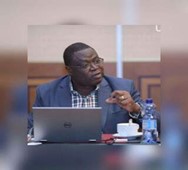
Expert-conseil en finance inclusive, ACR (Assistance & Consulting for Results), Togo
Mr. Kossi Amoussou holds a PhD in Management and a banking diploma. He is an international consultant in inclusive finance with more than 30 years of professional experience. Since 2000, he has headed ACR Togo (Assistance & Consulting For Results), a firm specialising in microfinance. As such, he specialises in:
- Financial and organisational audit/Development of business plans
- Organisation and management of MFIs/Formalisation of operational procedures
- Studies/diagnostics and evaluations of microfinance programmes
- Formulation of National Inclusive Finance strategies (including that of Togo validated in 2019)
Amoussou is also a trainer of CGAP Courses, a coach in Governance and Professional Management of Credit and Clients and a trainer in financing agricultural value chains.
Amoussou is a chartered accountant and a member of ONECCA-Togo since 2005. He consults major donors (ADA, BCEAO, UNDP, AFD, IFAD, Frankfurt School, FPM (DRC), ECOWAS...). He has extensive expertise on West Africa, Central Africa and on the islands.
René AZOKLY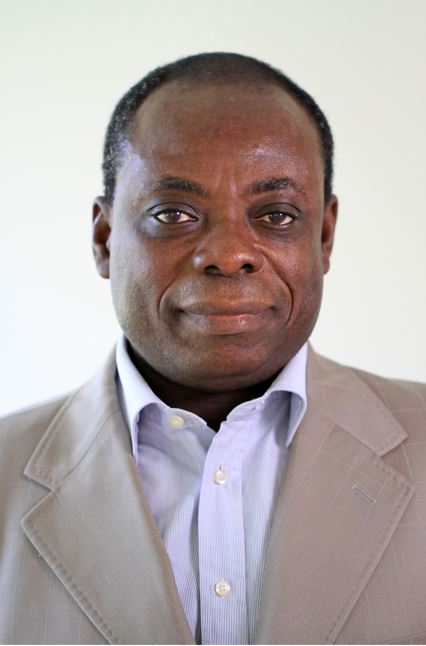
Director of the Technical Assistance Unit for Investment Funds of CIDR Pamiga, Côte d'Ivoire
René AZOKLY is currently the Director of the Technical Assistance Unit for Investment Funds at CIDR Pamiga. Prior to joining CIDR Pamiga, he was General Manager of PADME from 1996 to 2008, one of the main microfinance institutions in Benin. He has also been President or Member of the Board of Directors of several national and international organisations such as: APSFD of Benin, African Microfinance Network (AFMIN), Women's World Banking (WWB), PlanetFinance, International Guarantee Fund, RAFAD, LAPO Microfinance Bank etc. He was advisor to the Secretary General of the United Nations for the International Year of Microcredit. Mr. René AZOKLY is a professor at the Boulder Microfinance Institute and at the Catholic University of Central Africa (UCAC).
B
Ben Ayuk BESONG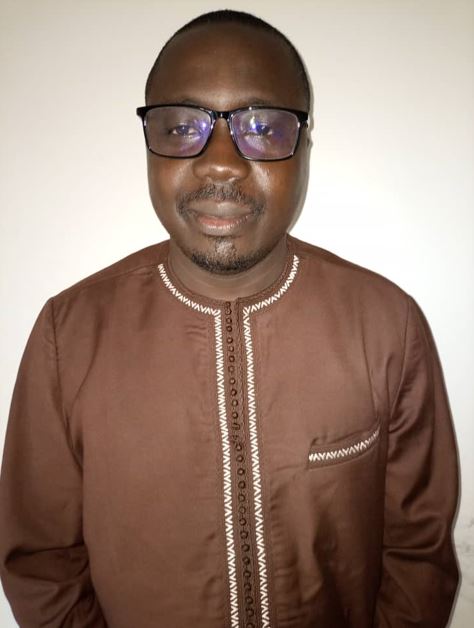
Senior Treasury Inspector, Ministry of Finance, Cameroon
Ben Ayuk Besong is a Senior Treasury Inspector, currently holding the position of Unit Head, Microfinance Promotion, Monitoring and Regulation Unit at the Ministry of Finance, Cameroon since 2017. Previously, he was in charge of the Financial and Banking sector at the Cabinet of the Director General of the Treasury, (2010-2015), Service Head, Public Finance Analysis (2015-2017), Ministry of Finance. His main interest is in Public Policy in Microfinance and Inclusive Finance, regulation and governance in MFI.
Previous roles included Cameroon Focal Point, Regional Strategy for inclusive Finance, hosted by regional central banks from six countries, Technical Project Coordinator for putting in place the microfinance promotion and surveillance platform, the refinancing scheme for MFIs and the deposit guarantee fund of MFIs. Ben Ayuk holds a Masters’ Degree in Economics from the University of Clermont Ferrand, France, a Master in Bank Management and a Master 1 in Public Law, University of Yaounde II, Cameroon. He is an Associate Lecturer at the National School of Administration and Magistracy.
Abdou Rafiou BELLO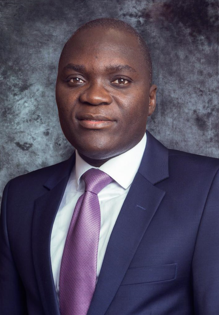
Director General of the National Microfinance Fund (FNM), Benin
Mr Abdou Rafiou Bello is an economist and an expert in banking and finance. He is the Director General of the National Microfinance Fund (FNM) in Benin. He has about twenty years of experience in macroeconomic diagnosis and analysis of the banking and microfinance sector at the Central Bank of West African States (BCEAO) and in the Beninese public administration. He was previously Technical Advisor to the Minister of Economy and Finance of Benin where he dealt, among other things, with the reform of digitalisation of public payments and restructuring of the microfinance sector. Promoted in October 2019 to the National Microfinance Fund, he notably led the digitalisation of the fund's interventions by setting up a microcredit program for vulnerable populations via mobile money platforms.
C
Oricel CAMINERO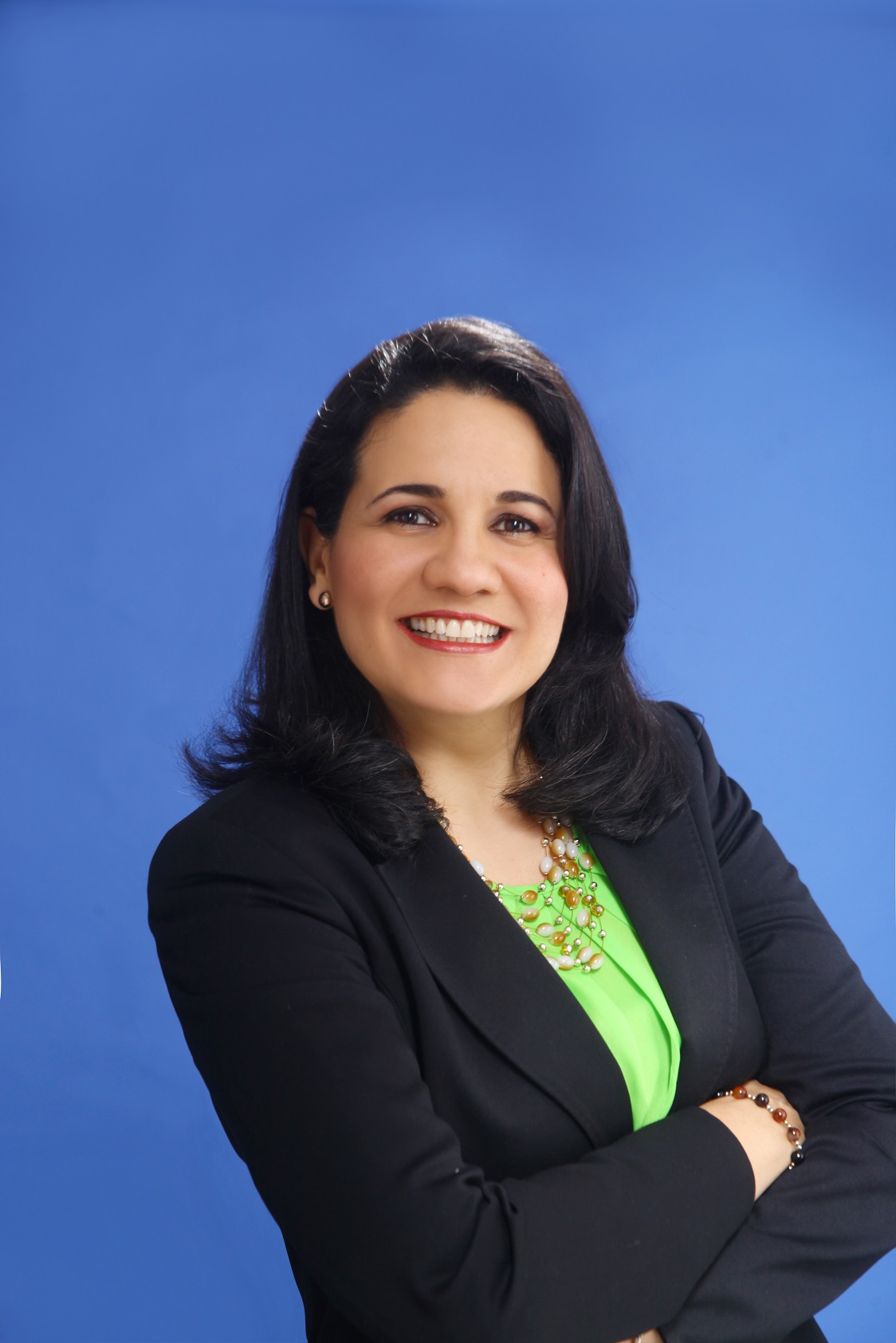
Coach, consultant & trainer, Achieve Consulting Group, S. R. L., Dominican Republic
Coach, consultant & trainer. Extensive experience in leadership and team development for various industries, countries, and cultures. Deep knowledge and experience in the inclusive finance sector (microfinance), especially in the Latin American region.
Mrs. Caminero holds a bachelor’s degree in Business Administration with the PUCMM University (Dominican Republic), Master’s Degree in Executive Management with INTEC University (Dominican Republic), Advanced Management Studies with Instituto de Empresa (Madrid, Spain) and Specialized Certificate in Governance Development with INCAE University (Costa Rica).
Mrs. Caminero is Master Trainer for Microfact and Microvision Tools, SPI Auditor for CERISE and Lead Assessor for Smart Campaign.
She is also a Certified Executive Coach (International Coaching Community, England) and Certified Resilience Coach (Driven, Australia). Based in the Dominican Republic with her husband and daughters.
Renée CHAO-BEROFF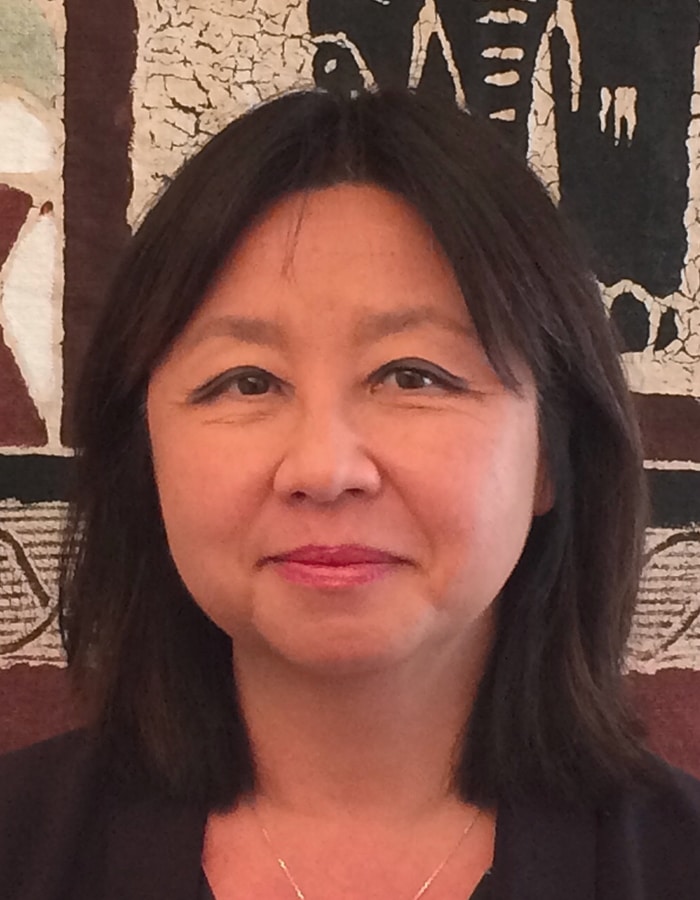
CEO and founder of CIDR Pamiga and Managing Director of Pamiga Finance SA, France
With a PhD in Economics and Finance, Renée Chao-Beroff is the founder and Managing Director of PAMIGA and PAMIGA FINANCE SA, an investment vehicle for rural microfinance in Sub-Saharan Africa. In 2019, at the merger of CIDR with PAMIGA, she became the CEO of CIDR Pamiga, an international NGO whose ambition it is to contribute to unlocking the social and economic potential of rural populations in Africa, Latin America and Asia.
Renée Chao-Beroff spent over 20 years in the financial inclusion sector where she not only worked in the field, in remote rural areas and in poor, peri-urban neighbourhoods, but also as an advisor to public and private decision-makers in policy and strategy, in many countries as well as to many donors.
Today, with CIDR Pamiga, Renée Chao-Beroff aims to push the frontiers of financial inclusion even further into impact investment and digital platforms for agricultural value chains to address the challenges of climate change.
Anne CONTRERAS-MULLER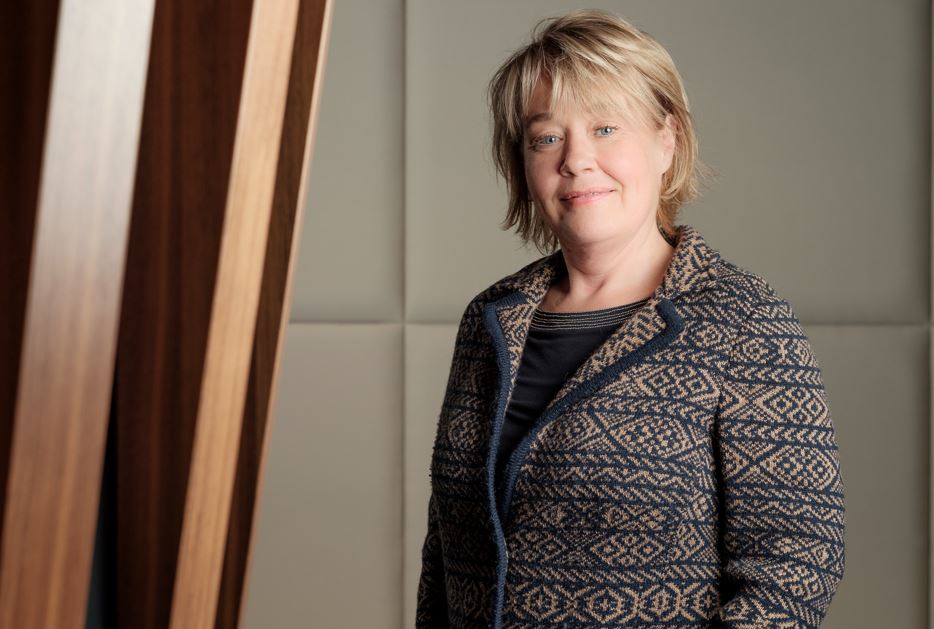
Of Counsel, Arendt, Luxembourg
Anne Contreras-Muller is Of Counsel with Arendt & Medernach.
After joining the firm in 1998, she became Partner in 2008.
Of Counsel since 2011, Anne’s work with Arendt & Medernach is now dedicated exclusively to microfinance and social impact projects. She leads a team of five lawyers, advising selected domestic and international clients on the corporate and regulatory aspects of microfinance funds and social/environmental impact funds. The team’s activities also cover social enterprise and philanthropy, in particular the set-up of technical assistance programs.
Anne chairs the board of Microlux, the Luxembourg microfinance institution, and is a board member of the European Microfinance Platform (e-MFP). Together with her team, she is also involved in several other local and international initiatives such as the International Climate Finance Accelerator (ICFA), an accelerator for climate finance fund managers and the Inclusive Finance Network (InFiNe).
Violette CUBIER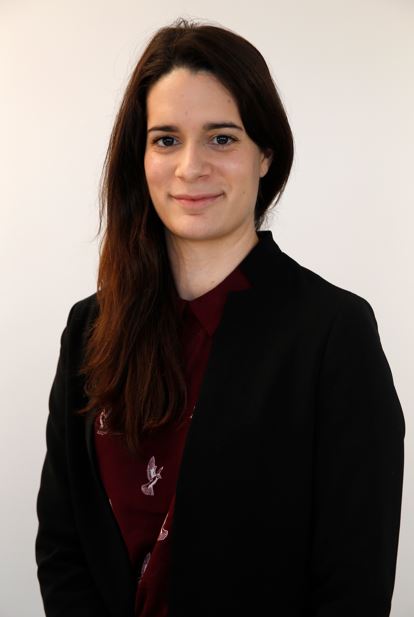
Manager Technical Assistance Programmes, Grameen Crédit Agricole Foundation, France
Violette Cubier has 8 years of experience in the microfinance field. After some volunteer work with the Pan-American Development Foundation in Colombia, she started her career in 2013 as an analyst and then as an investment manager at Babyloan, a French crowdfunding platform specialized in microfinance. She then joined the Grameen Crédit Agricole Microfinance Foundation in 2016 as an Investment Officer, where she carried out more than 25 due diligence, monitoring and prospection missions of MFIs based in East Africa, West Africa and the MENA region. Since March 2020, she is managing the Technical Assistance programmes of the Foundation.
Violette holds a Master’s degree in International Affairs from Sciences Po Paris, specializing in International Economic Policy. She speaks French, Spanish and English.
D
Mariame Esther DASSANOU 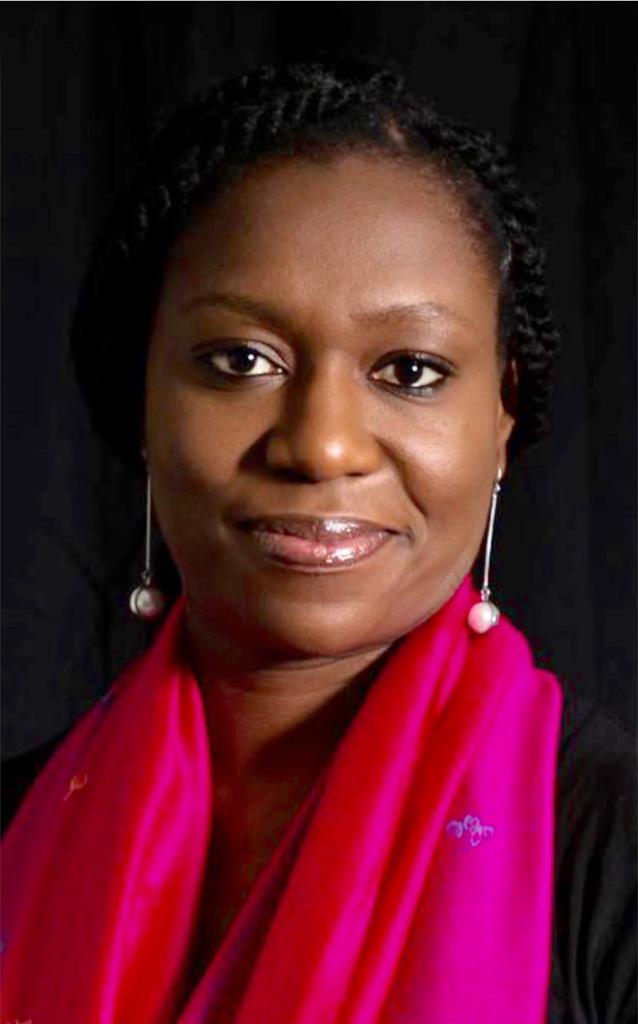
Manager – Affirmative Finance Action for Women in Africa (AFAWA), African Development Bank, Côte d'Ivoire
Esther Dassanou manages the Affirmative Finance Action for Women in Africa (AFAWA), an initiative of the African Development Bank to reduce the USD 42 billion access to finance gap for women-empowered businesses in Africa. Prior to joining AfDB, Esther led the International Finance Corporation’s (IFC) work on advancing women’s inclusion in the insurance sector as the head of the women’s insurance programme. Esther worked with insurers across Africa and Asia to help insurers in de-risking female-owned SMEs and providing better coverage for women’s daily risk. Esther also led the mainstreaming of IFC’s women’s access to finance through the organization’s SME banking program.
She has also managed the Secretariat of the Global Banking Alliance for Women, a consortium of financial institutions dedicated to promoting the growth of women-owned enterprises. Esther is the co-author of SheforShield: Insure Women to Better Protect All, a groundbreaking report articulating the business case for the insurance industry to address the needs of women as clients, employees, entrepreneurs and leaders. Esther was also a lead author of the G20 reports G20 – Access to Finance for Women MSMEs and Women-owned SMEs: A Business Opportunity for Financial Institutions, which for the first time measured the access to finance gap for female-owned SMEs in developing markets.
Olivier DEITERS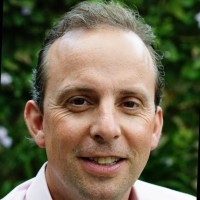
Regional Manager for AME, Triple Jump, Kenya
Currently Regional Manager for the African and Middle East region (AME), Olivier joined Triple Jump five years ago as Investment Officer. Olivier has been in his current position for two years. Prior to joining Triple Jump, Olivier worked at Triodos in a similar role overseeing the African continent. Before joining the impact investment industry, Olivier gained extensive experience in financial services at a major global leasing company. Olivier holds a Law degree from the University of Leiden and an MBA from HEC Paris.
Arnaud DE LAVALETTE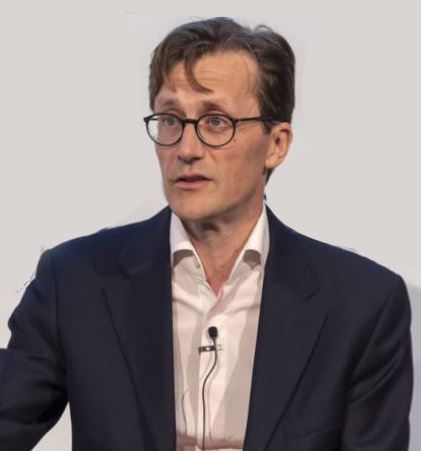
Senior Project Manager, ADA, Luxembourg
Arnaud de Lavalette is currently leading the Digital Finance Initiative at ADA, helping African MFI digitalize their operations.
He is a seasoned expert in microfinance and SME funding with over 10 years of experience in this domain in Asia (Nepal, India and Philippines), West Africa and Latin America (Mexico).
In the SME domain, Arnaud has worked in Nepal where he conducted surveys for the IFC and supported SME entrepreneurs with the European Commission. In India he designed an investment vehicle (equity fund) which aimed at supporting Indian social SMEs.
In the microfinance sector – beside many technical assistance missions around the world, he managed the turnaround and sold MicroCred Mexico, and more recently was CEO of mBank Philippines, a greenfield banking project financed by international investors (FMO, Finnfund, MBH) and Smart the leading telecom company in the Philippines.
Currently, he works with ADA on a new digital finance project, helping African MFI digitalize their operations, i.e. integrate the mobile services as communication and distribution channels and migrate MIS into the cloud. As of now, half a dozen institutions are accompanied in their change process.
Prior to joining the development sector Arnaud gained a bright experience in both finance and new technologies. He started his career as an auditor with Arthur Andersen (3 years), evolved as a controller and finance analyst (3 years) and founded a web agency he has managed for 7 years.
Jerry DIAZ
Business Development Manager, Simusolar, Tanzania
Working at Simusolar as a Business Development Manager, Jerry takes pride in closely monitoring what farmers need in relation to what simusolar can offer. Possessing a unique blend of business and technical knowledge, he enjoys spending most of the time in the field helping farmers with their needs, improving their skills and providing access to finance. They can effectively use Simusolar’s wide range of innovative, solar-based pumps to generate more income for their livelihood.
Soulémane DJOBO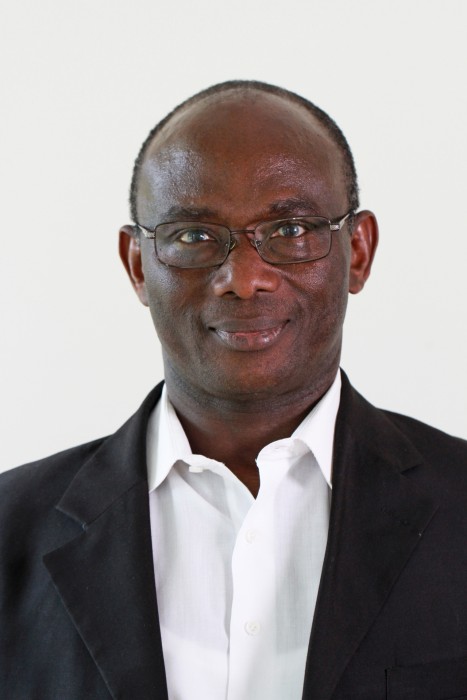
Head of Technical Support to Microfinance Institutions, ADA, Luxembourg
Soulémane Djobo is a senior project officer, responsible for the MFI Technical Support Unit at ADA. Before joining ADA in 2017, he was: (i) Director of the Central and West Africa Regional Office, Director of Microfinance, Enterprise and Employment Creation (MECE) at CIDR; (ii) Director of the FECECAV network; (iii) Expert in rural credit training within the MCA-Burkina Faso project on behalf of Développement International Desjardins (DID); (iv) Technical Portfolio Manager (FENU); and (v) Director of the MFI capacity building programme in French-speaking Africa (CAPAF) based in Dakar.
Trained as an economist/manager and specialised in agri-food economics, he worked at the Caisse Nationale de Crédit Agricole (CNCA Togo) successively in the Projet Petit Crédit Rural (PPCR) as a loan officer and then as branch manager.
He has been working at Boulder MFT (Turin) since 2005 where he has facilitated all the technical themes of CGAP for MFIs, donors and central banks.
He coordinated the development of training in the framework of the Capacity Building Programme in Inclusive Finance (PRECAF), a joint initiative of CESAG (BCEAO) and the MasterCard Foundation.
E
Olivier EDELMAN (online speaker)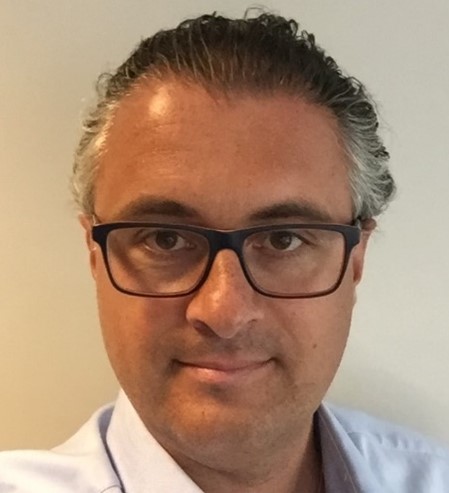
Head of Microfinance Unit, Non-EU Equity and Microfinance Division, European Investment Bank (EIB), Luxembourg
Olivier Edelman heads the EIB’s microfinance unit covering microfinance operations outside the EU. The EIB, based in Luxembourg, is the European Union’s long-term financing institution. Olivier is responsible for the origination and execution of equity and loan operations (direct or indirect via funds) in support of micro-entrepreneurs and financial inclusion, notably via microfinance institutions. Previously, Olivier was in charge of the development and execution of portfolio guarantees benefiting SMEs and mid-caps, via financial intermediaries, at the EIB and the European Investment Fund. Olivier joined the EIB Group in 2009 after holding positions in different Belgian commercial banks, including roles in structured finance. Olivier holds a degree in Economics from the ‘Université Libre de Bruxelles’ (Belgium).
Maria Belen EFFIO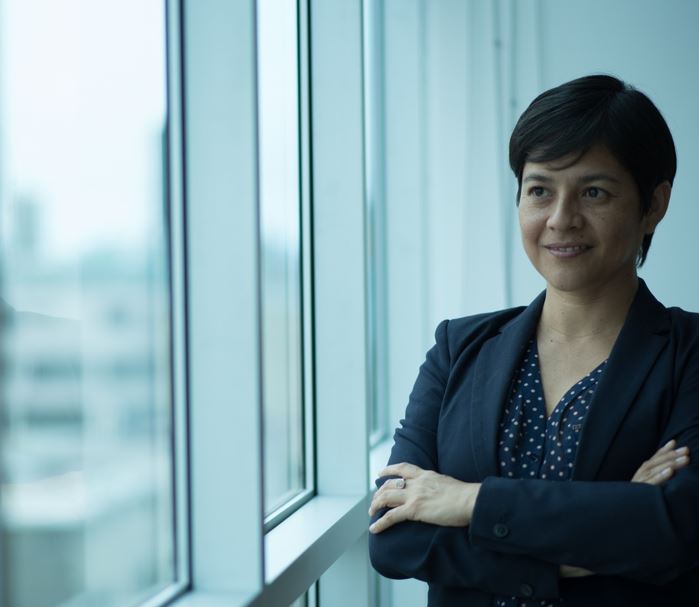
Regional Manager Latin America, MicroRate, Peru
As a Regional Manager, Maria Belen succeeded in consolidating MicroRate’s name in Latin America, and contributed to enhancing transparency in the sector, as well as in developing new markets for microfinance. Since joining MicroRate in 2003, she has performed credit ratings, institutional ratings, social ratings, portfolio ratings and special evaluations in a variety of financial institutions (MFIs, banks, credit unions, investment funds) in around 20 Latin American, Caribbean and African countries.
Maria Belen is an economist with an International MBA from the Instituto de Empresa (Spain), and with experience in the fields of risk management, investment and banking.
Eric EKUE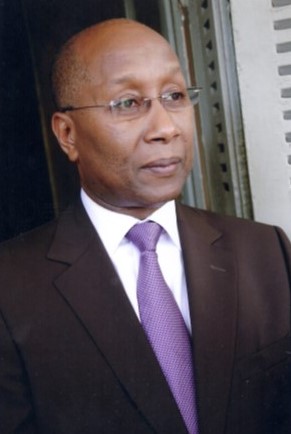
Consultant for microfinance projects and director in two credit institutions, Senegal
Eric Ekue joined the Central Bank of West African States (BCEAO) in 1980 after completing his university studies in Aix-en-Provence, France, and an integration course at the West African Centre for Banking Studies and Training (COFEB). From 1992 onwards, he was involved in BCEAO's microfinance programmes in the WAMU. From July 1999 to February 2003, he was Director in charge of the Regulation and Development of Microfinance at BCEAO. From February 2003 to December 2006, as Director of Decentralised Financial Systems at BCEAO, he participated in the elaboration of regulatory texts and the implementation of a mechanism for their application. In this position, he contributed to the accounting reference framework specific to the DFS, the DFS inspector's guide and the institutionalisation of the national SFDAs. During this period, he also took part in the work of the Group of Advisors of the Secretary General of the United Nations for the International Year of Microcredit, in the DAKAR Conference on Financial Inclusion and in the definition of the Regional Support Programme for Decentralised Finance (PRAFIDE). From December 2006 to December 2008, he held the position of Secretary General of the WAMU Banking Commission and ended his career at BCEAO in December 2009 as Controller General. From 2010 to date, Mr. Ekue has consulted several microfinance projects and is a director of two credit institutions in the sub-region.
Thomas Thompson ESSEL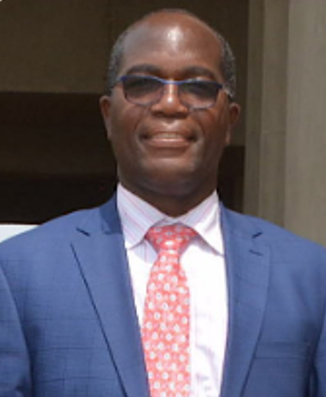
Secretary General, AFRACA, Kenya
Thomas Thompson Essel is the Secretary General of the African Rural and Agricultural Credit Association (AFRACA), which is a network of over a hundred financial institutions, headquartered in Nairobi, Kenya. He has many years of experience in Economic and Development issues. At AFRACA, he leads collaboration programmes with governments in Africa and a number of development partners.
Prior to joining AFRACA, he worked in Bank of Ghana for over twenty-two years, holding different positions. The latest positions being head of External Financial Relations and Head of the Bank of Ghana-initiated “Ghana Incentive-Based Risk-Sharing System for Agricultural Lending” (GIRSAL), providing strategic and technical guidance to management.
Mr. Essel has considerable experience in policy, having worked both in Bank of Ghana and also in policy coordination, monitoring and evaluation in the public sector. He also has extensive experience in research, international relations and rural finance. Mr. Essel holds a Masters’ Degree in Development Studies from the University of Cape Coast in Ghana. He has contributed to a number of publications on access to credit by rural and agricultural population at the bottom of the pyramid.
F
Laura FOSCHI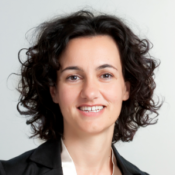
Executive Director, ADA, Luxembourg
Laura Foschi is currently Executive Director at ADA, a Luxembourg non-governmental organization that promotes inclusive finance worldwide. She is also Senior Investment Manager and responsible for all investment services to Luxembourg Microfinance Development Fund (LMDF). Prior to this position, she has been Deputy Director at ADA for 3 years, and the general director of the microfinance investment vehicle Consorzio Etimos for 5 years. She has also coordinated and delivered training and technical assistance in microfinance programmes during more than 10 years in Latina America, Africa and Balkans.
She has been member of the board of directors of FEBEA (European Federation of Eth ical and Alternative Banks). She was lecturer at the University of Parma where she taught the Economics of Microfinance and she was also board member of the Master on Finance for Development. She additionally worked as a consultant for UN agencies such as CEPAL (Comission Economica para America Latina y Caribe) as well as European commission funded programmes.
She has written publications on social banking as well as social capital and microfinance. She speaks fluently Italian, French, English and Spanish. She is member of the Steering Committee of the Responsible Microfinance Facility and of the EIIL (European Impact Investing Luxembourg). Her main areas of interest are impact and inclusive finance, sustainable development and green economy.
She currently provides trainings and lectures on inclusive finance at University of Luxembourg, Université de Lorraine, European Microfinance Programme (Libre Université de Bruxelles), and many other training centres in Africa, Latin America and Asia.
General discussion following Keynote 3 (plenary session)
Wednesday 20 October, 17.00 - 17.45
G
Matthew GENAZZINI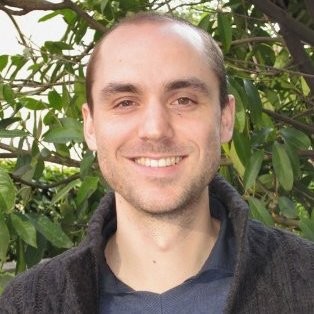
Programme Coordinator of SSNUP (Smallholder Safety Net Up-scaling Programme), ADA, Luxembourg
Matthew Genazzini has 11 years of experience in development finance working for the Microinsurance Network and ADA. He has a BA in Contemporary History from the University of Sussex and an MA in Latin American Studies from the University of London. He has experience managing capacity building and product diversification projects for financial institutions, with a particular focus on microinsurance. Matthew managed for 5 years the Technical Support for MFIs unit in ADA, which aims to strengthen financial institutions through the provision of financial and technical assistance services. In 2020, he changed post and now coordinates the Smallholder Safety Net Up-scaling Programme (SSNUP).
Kimathi GITHACHURI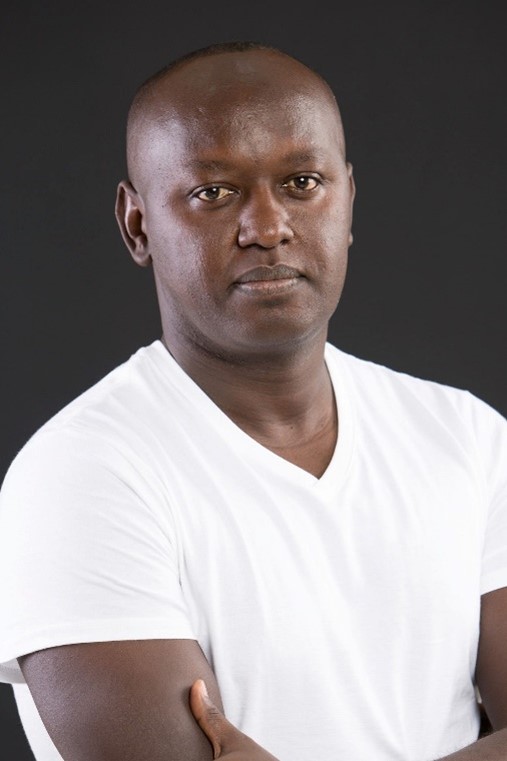
Lead Technical Specialist, Scale2Save Program, Kenya
Kimathi Githachuri is currently the Lead Technical Specialist for Anglophone Countries under the Scale2Save Program, a partnership between the World Saving and Retail Banking Institute (WSBI) and the MasterCard Foundation (MCF).
The Scale2Save Program supports 10 microfinance institutions and commercial banks in 6 countries spread out in East, West and North Africa, to implement innovative solutions that test the viability of small-value savings for low-income segments of the population.
Kimathi Githachuri, a DFS thought leader, has more than 15 years’ experience both as a practitioner and as a consultant working in more than a dozen countries in Africa, Asia and the Pacific.
Gabriele GIUGLIETTI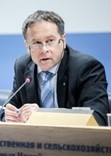
Director in Charge of International Development Activities of Banca Etica, President of Cresud, Italy
Gabriele began his banking career at Credito Italiano in 1990 and joined Banca Popolare Etica in 1998 where he held a number of positions including Deputy Managing Director from October 1998 to 2011 , Director of Sales and Institutional Affairs from 2011 to May 2013, Director of Credit, Institutional and International Affairs since 2013. He is now in charge of the international development activities of Banca Etica.
Appointed Officer of the Italian Republic in 2000 as on of the founders of Banca Etica by the Italian President Carlo Azeglio Ciampi, he is currently President of Cresud (the Banca Etica Group’s financial tool dedicated to microfinance and fair trade). He served as a member of the Board of Etica SGR (Banca Etica Group Investment Company) from 2002 to 2014 and as a member of Libera Terra Mediterraneo (cooperatives working on land confiscated from the mafia) until 2020. Gabriele is also a Board member of Coopest and Coopmed.
Hannes GRÄF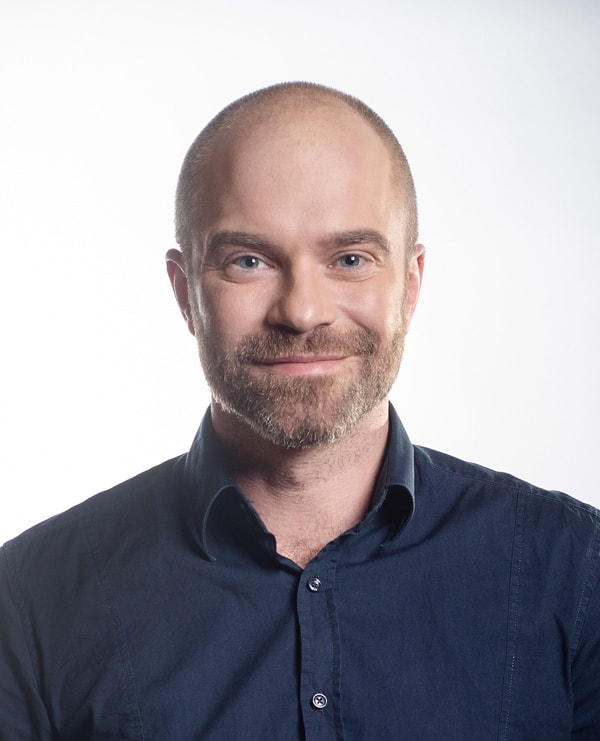
Co-founder and Head of Brand and Communication, YAPU Solutions, Germany
Hannes Gräf is Co-founder and Head of Brand and Communication of YAPU Solutions, a German Fintech providing digital solutions and consulting services to financial institutions in Latin America and Africa. Prior to joining YAPU Solutions, Hannes held senior positions in leading digital agencies for strategy, marketing and business development in Germany. Hannes contributed to the implementation of the second phase of the „Microfinance for Ecosystem-based Adaptation“-project (MEbA) by UNEP. He is the communication lead of the „Scale for Resilience“ Initiative which is currently participating in UNFCCCs Race to Resilience. He holds a Master’s degree in English, communications and political science from Humboldt University and Free University Berlin.
Mamadou Lamine GUEYE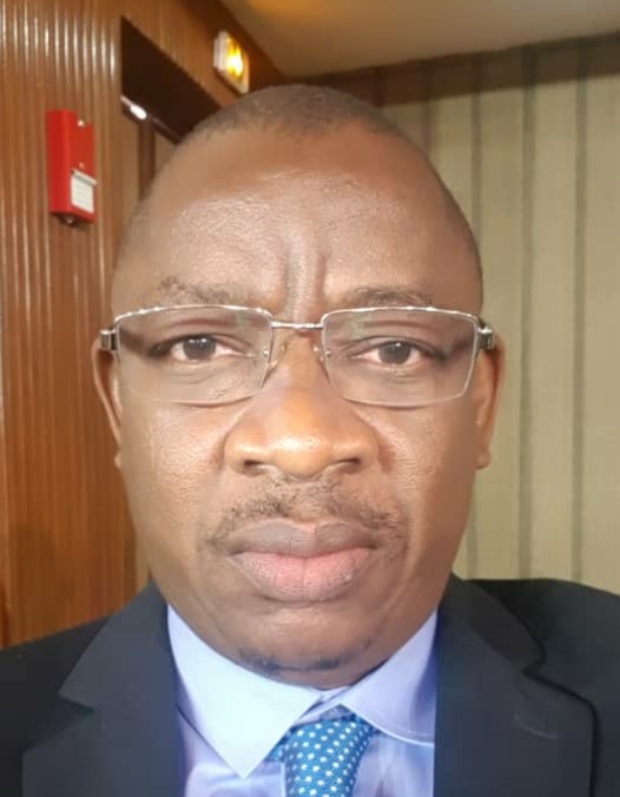
Managing Director at Caurie Microfinance, Senegal
Mamadou Lamine Gueye is both an Agronomist Engineer and a Food Industry Engineer and holds a Diploma of Higher Studies in Banking from ITB. After 5 years at the ‘’Caisse Nationale de Crédit Agricole du Senegal’’, Mr Gueye worked in an association of peasant organizations (ASPRODEB / CNCR) as Credit and Alternative Financing Officer and then at Catholic Relief Services as Operations Manager of Microfinance which would later become Caurie Microfinance, of which he has been the CEO since its creation in 2005.
He has followed CGAP trainings on management of non-payments, management of operational risks, management information system, financial education, new products develpment, etc.
With a career of around thirty years in different development sectors, Mr Gueye has actively and continuously participated in building an inclusive and responsible financial sector in Senegal, in Africa and the world. For five years, Mr Gueye led the professional association of approved microfinance institutions in Senegal.
Philippe GUICHANDUT
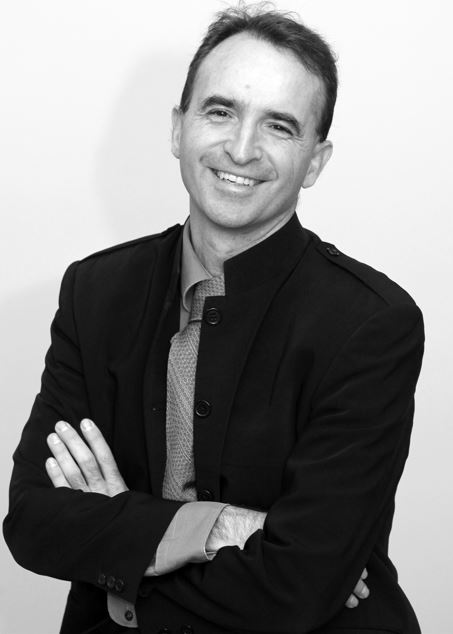 Head of Inclusive Finance Development, Grameen Crédit Agricole Foundation, France
Head of Inclusive Finance Development, Grameen Crédit Agricole Foundation, France
From 1986 to 2004, Philippe Guichandut worked for various French development NGOs (France Volontaire, Inter-Aide, Enfants et Développement – Save the Children France, CCFD-Terre Solidaire), of which he spent six years in Rwanda, India and the Philippines. He was in charge of setting up and monitoring development and microfinance projects.
He became the first Executive Director of the European Microfinance Network when it was created in 2004 before joining the Grameen Crédit Agricole Foundation in November 2010. He has been teaching development project management and microfinance for more than 20 years in France and abroad.
Philippe Guichandut holds a Master’s degree in Urban Social Development from the University of Evry and an MBA from the European University of San Francisco.
H
Jean Bosco HARELIMANA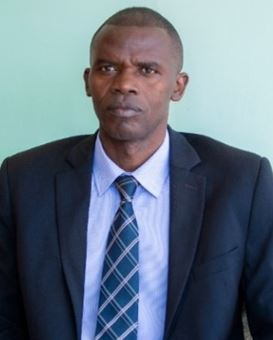
Director General, Rwanda Coopératives Agency, Rwanda
Since 2018, Prof. Dr. Jean Bosco Harelimana is the Director General of Rwanda Cooperative Agency which is a public institution in charge of promotion, registration, capacity development and regulation of cooperatives. Prior to his current position, he was the Regional Coordinator of AQUADEV Central and Eastern Africa for seven years, the focus of AQUADEV was MFIs capacity development, financial inclusion and rural finance. He was also at SOLIDEV SABL for three years and VISION JEUNESSE NOUVELLE for six years. Jean Bosco also has experience in designing and monitoring the implementation of socio-economic development programmes.
For seven years, Jean-Bosco was the coordinator of postgraduate studies at INES-Ruhengeri and Professor in Business and Economics at INES-Ruhengeri where he intervened as a member of the INES Council, INES Academic senate. He is Deputy Chairman of the council of Université Libre de Kigali. He has more than sixteen years’ experience in academic leadership, teaching and research. He has a good publication record, including publications in top internationally recognized peer-reviewed journals and supervises students’ research projects at all levels of university education. He mainly works on bridging the innovation gap between academia and industry. His current research interests are mainly in microfinance, cooperatives, finance, control and audit, business management, project management, entrepreneurship and market analysis. Jean Bosco holds a PhD in Finance and a Masters’ in Microfinance and economic development. Since January 2006, he is a Professor at higher learning institutions and Universities in Rwanda, Senegal, Ethiopia and Belgium.
K
Christian KAJENERI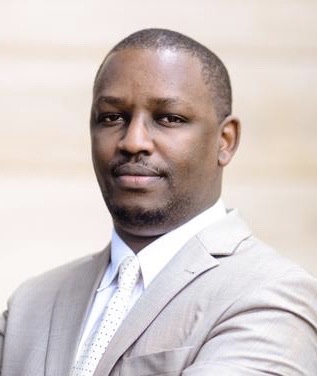
Head of Strategy, Products and Services, MTN Mobile Money, Rwanda
Christian joined MTN Mobile Money Rwanda from Equity Bank Rwanda PLC, where he was Head of Payments (Digital Channels) with key responsibilities: mobile banking, internet banking, eCommerce (MPGS), remittances, diaspora banking, agency banking, merchant acquisition (POS & EazzyPay), card business issuing and social projects/strategic partnerships.
Prior to this, Christian served with Ericsson AB, MMEA East Africa – Region with MTN as the customer unit in Rwanda, Zambia, and the Kingdom of Eswatini. In this role, he was the Account Manager in charge of ECW/digital services new sales, and presales. He previously worked in various positions in IT, operations management, business strategy, supply chain management, sales, negotiations, and FinTech.
Christian holds a Master’s in business administration and leadership from the African Leadership University School of Business and a Bachelor of Engineering in Electronics & Telecommunication from the University of Rwanda, College of Science and Technology (former Kigali Institute of Science and Technology).
Carlos KALAMBAY KABANGU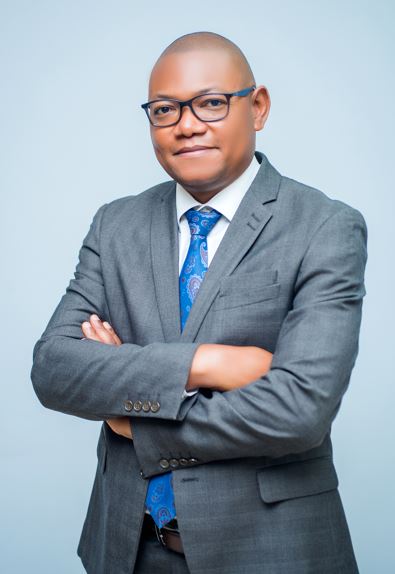
Managing Director of FPM SA, Democratic Republic of Congo
Mr. Kalambay Kabangu Carlos has 16 years of experience in the banking sector in the Democratic Republic of Congo. From 2004 to 2013, he worked at Procredit Bank Congo (now Equity Bank) where he held several positions: Head of the Audit Department, Credit Manager, Risk Manager, Human Resources Manager. He acted as Deputy General Manager of Procredit Bank Congo from 2008 to 2013.
Since 2014, he is the General Manager of FPM SA in the DRC. FPM SA is the refinancing vehicle of FPM for financial inclusion, whose main mission is poverty reduction through technical support and refinancing of financial institutions in the DRC, targeting small and medium-sized enterprises and low-income populations.
Tezera KEBEDE BEKELE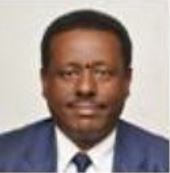
CEO, PEACE Microfinance S.C, Ethiopia
Tezera Kebede Bekele is CEO of PEACE Microfinance S.C Ethiopia which is a deposit-taking MFI. Certified in digital finance, he is a microfinance pioneer in Ethiopia, right from the very start, and has over 30 years of experience as a leader in the areas of microfinance, micro enterprise development, handicrafts and small-scale industry.
Tezera currently sits on the boards of three independent organisations, namely the Association of Ethiopian Microfinance Institutions (AEMFI), Ethiopian Financial Inclusive Technology (ETIFT), and Agri Service Ethiopia.
He holds an MBA in Financial Management, a Post-Graduate Diploma in Management, and a Post-Graduate diploma in Financial Management from Indira Gandhi National Open University. His first degree is a BA in Economics from Addis Ababa University.
Ibrahima KEÏTA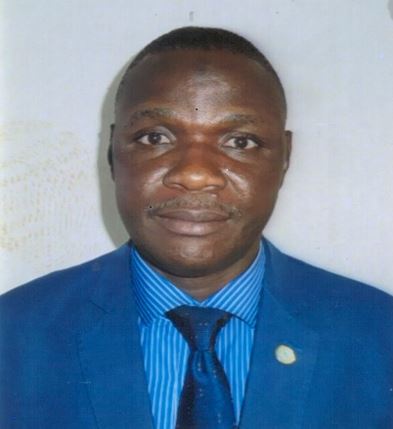
Managing Director of Kafo Jiginew, Mali
Ibrahima holds a Master's degree in business administration from the National School of Administration (ENA) in Mali and a post-graduate diploma in banking from the Technical Institute of the Banque du Conservatoire des Arts et Métiers of Paris and several professional trainings in Africa, Paris, Luxembourg and Canada. He has more than 25 years of experience mainly in rural areas in the following areas:
- organisation, control and implementation of good management practices of rural organisations, as inspector of rural management consultants in the Rural Management Project "P.G.R" (2 years);
- creation, organisation, business development and control in the rural and urban microfinance sector, having evolved in several positions and currently, Deputy Managing Director and Chairman of the Network Risk and Compliance Committee of the Caisses Mutuelles d'Epargne and Crédit "Kafo Jiginew" in Mali (19 years).
In January 2021, he became General Manager of Kafo Jiginew (Union des Caisses Mutuelles d'Epargne et de Crédit du Mali).
Since February 2021, he has also been Chairman of the Board of Directors of the micro life insurance company "CIF Assurance Vie S.A" in Mali.
Valence KIMENYI
Director of the Financial Sector Development and Inclusion Department, National Bank of Rwanda, Rwanda
Valence is the current Director of the Financial Sector Development and Inclusion Department (FSDI) at the National Bank of Rwanda (NBR), the central bank, where he leads reforms to develop the financial sector. He specifically leads NBR’s programs on financial inclusion, financial education and financial innovation.
He previously held the position of Director of the Financial Stability Department where he designed and implemented the macroprudential policy framework of the central bank, led all publications on financial stability and supervised the credit reporting system. Prior to that, Valence served as a World Bank economist at the Kigali office. He holds a Master’s and a bachelor’s degree in economics.
Justin Jules KOUTETE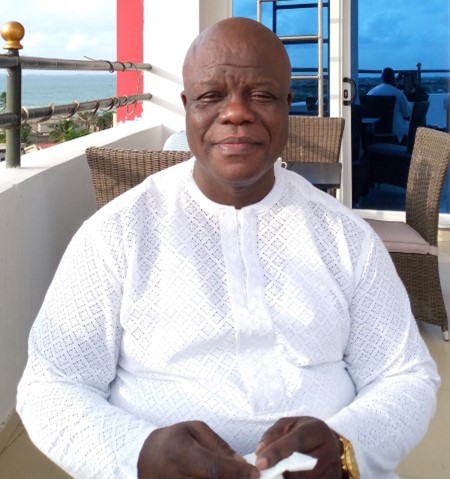
Director General of UCEC-MK, Chad
Justin Jules KOUTETE is a consultant in inclusive finance and local development. He has over 25 years of experience in rural finance. He is a Technical Advisor to CIDR and the current Director General of UCEC-MK in Chad.
L
Dominique LESAFFRE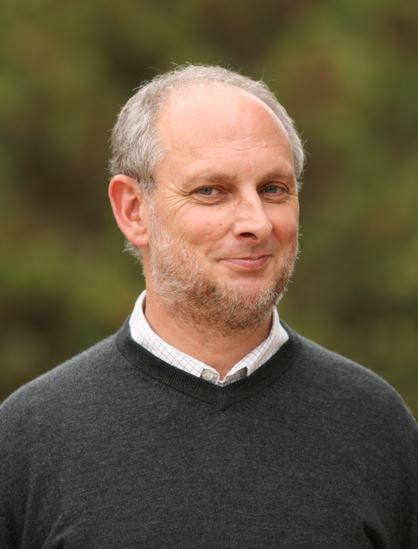
Director General, SIDI, France
Dominique Lesaffre has been Managing Director of SIDI since December 2015. He has been with SIDI since 2001 and was in charge of solidarity investments until 2015 in areas as varied as Latin America, the Sahel, Palestine and Southern Africa, as well as relations with solidarity finance networks on a continental level.
In addition to representing SIDI on several boards of financial institutions and solidarity finance networks, he is a consultant on social and solidarity economy topics, with a particular focus on the conditions for institutional sustainability and sovereignty. He has thus supported many different actors (microfinance institutions, social banks, producers' organisations in Latin America, Africa, Middle East and Central Asia) in the field of solidarity investments and technical assistance and guidance.
Dominique has 38 years of experience in designing, developing, implementing and monitoring development finance systems. He has managed a hospital in the Brazilian Amazon and worked in European solidarity and social investment organisations. Dominique was Head of the Africa Department of CCFD in the 1980s and Executive Director of RAFAD/FIG, Geneva in the 1990s. With a degree in economics from the University of Vienna (Austria) and an MBA (ESSCA Angers), Dominique works in five languages.
Paolo LOMBARDO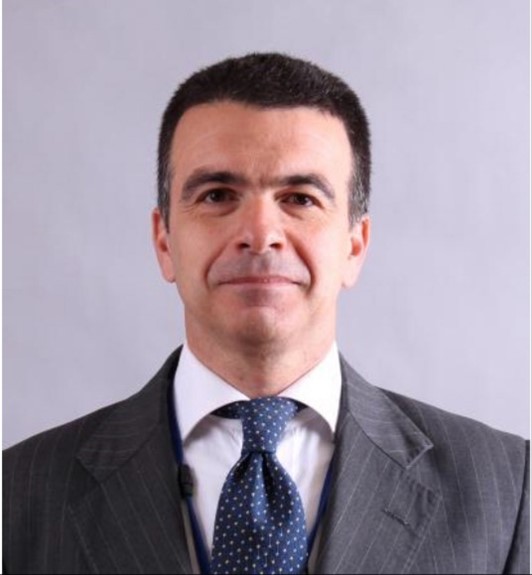
Head of regional representation for East Africa, European Investment Bank (EIB), Kenya
Paolo Lombardo is the Head of the EIB’s Regional Representation for East Africa, based in Nairobi. Prior to moving to Kenya, Mr. Lombardo was the Deputy Director General of the EIB’s Risk Management Directorate. During his 19-year career at the EIB, he managed the Bank’s lending and equity portfolio outside the European Union, ran the credit risk department and was instrumental in the launch of the EIB’s prudential best banking practice and climate change risk management initiatives. Paolo started his career in investment banking (M&A). In the 90s, he moved to Asia to focus on infrastructure project financing. Prior to joining the EIB, he was Global Head of Power and Utilities at ABB Structure Finance. Paolo holds a degree in business administration and corporate finance from Bocconi University, and is married with 3 children.
General discussion after the keynote address (plenary session)
Wednesday 20 October, 17.00 - 17.45
M
Siyabonga MBAMBO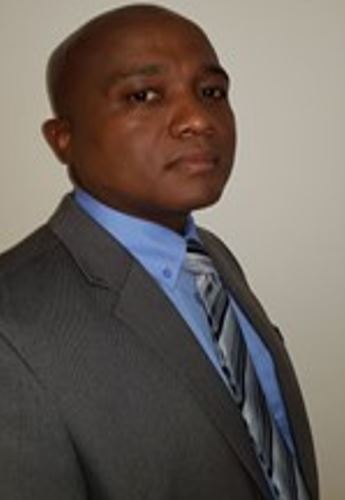
Chief Operating Officer, Nyda, South Africa
Siyabonga is a self-starter who is a highly motivated person. He has extensive experience in the public and private sector. He is passionate about issues of economic development and economic inclusion and has participated in a number of economic development forums.
Siyabonga has been a Senior Manager of Operations at the South African National Youth Development Agency (NYDA) since 2012. Prior to this, he was a Senior Agricultural Management Advisor at the South African Department of Agriculture and a Pioneer Foods Buyer. He holds a Masters in business Leadership from University of South Africa and an MSc(agric) from University of KwaZulu-Natal.
Thiendou MBAYE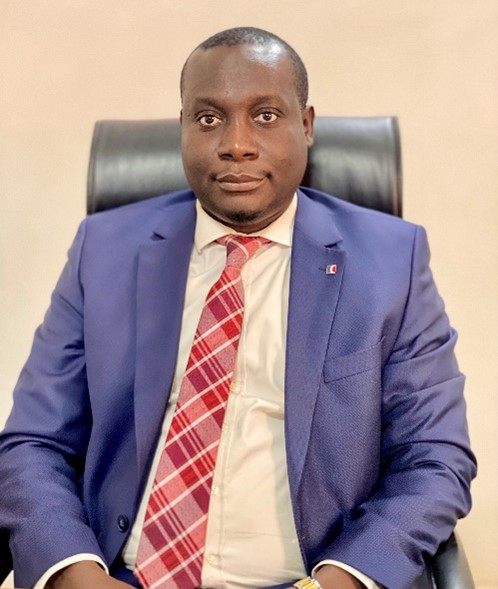
Managing Director, COFINA, Mali
Thiendou MBAYE has 17 years of experience in the banking sector. Strategic and dynamic, he was Director of CPS (Cash Point Services) Senegal, a subsidiary of COFINA Group, from 2014 to 2015. In January 2016, he was promoted as Chief Operating Officer of the Retail Financial Services Group of COFINA, where he took up many challenges. It should also be noted that Thiendou held several positions at UBA (United Bank for Africa) Senegal from 2009 to 2013 where he was Chief Operating Officer before joining the COFINA Group.
In all the financial institutions where Thiendou worked, he quickly got promoted, hence his current position as Director General within COFINA Mali since July 2017. He holds a Master's degree in Finance and Accounting.
Paul Ruru MBUGUAH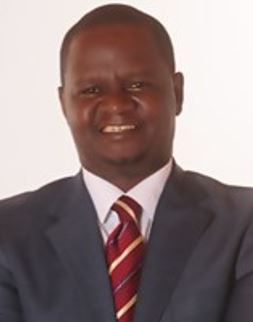
Founder and Group CEO of Eclectics International Limited, Kenya
Mr. Paul MBUGUAH holds an Executive MBA from Harvard Business School, an MSc. in Computer Science as well as an MIS, both from the American Institute of Computer Science (AICS), and a BSc. in Mathematics from the University of Nairobi. He is a well-known banking ICT professional throughout the African Continent, and he an expert in digital channels and banking automations with more than 26 years of professional experience.
Paul founded Eclectics International Ltd in 2007 with a key focus on providing affordable locally made and supported banking automation systems. In the last 13 + years, the company has employed over 207 employees and implemented turnkey ICT projects in 240+ banks across 25 countries. Eclectics has pioneered profitable financial inclusion projects across many parts of Africa, using low-cost, wide-reach technologies like mobile wallets and agency device agnostic agency banking.
Globally, he is recognized as a strategic leader and entrepreneur and is a recipient of the 2017 Endeavor Entrepreneur award that now positions him among the key drivers of the High Impact Entrepreneurship Movement. He is a renowned public speaker at global forums and seminars.
Samke MNGUNI
Deputy Director, Digital Frontiers, South Africa
Samke Mnguni is Deputy Director at Digital Frontiers. She currently leads the development of two capacity-building projects, one in digital payments for the health sector and the other for professionals working in the digital economy. Previously, she worked as a senior manager in natural resource management as well as an impact management consultant where she measured the impact of socio-economic development projects for the renewable energy sector. Currently, she is a Certified Digital Finance Practitioner student with DFI. She is interested in enabling professionals to meet the SDGs with a focus on financial inclusion and sustainable livelihoods.
Ntoudi MOUYELO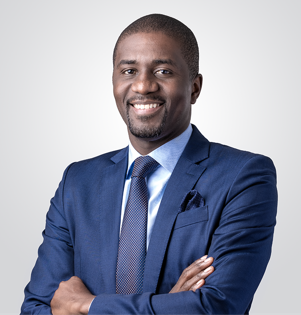
Chief Investment Officer at Rwanda Finance Limited, Rwanda
Ntoudi brings a solid international banking and finance experience to Rwanda Finance Limited, having worked as a senior executive in various international financial centres in Europe and Asia over the last 20 years. Before joining Rwanda Finance Limited, Ntoudi was the Country Managing Director of Wintrust in Singapore from 2017 to 2019. Previously, he served in a variety of positions, including Director of Amicorp, a corporate service provider, Executive Director of Banque Internationale à Luxembourg where he was in charge of the commercial activities for the Asia Pacific region and Assistant Vice President managing the European and Asian services to financial intermediaries.
He is specialized in risk management, structuring investment entities for financial institutions and large corporates. He has also developed an expertise in designing wealth planning solutions for family offices and high net worth individuals. Ntoudi is currently a non-executive board member of MC Square, a regulated financial institution based in Luxembourg.
Ntoudi holds a Master’s degree with distinction in banking and finance from the Luxembourg School of Finance completed with an executive week at Stern University in United States. Furthermore, he holds a Bachelor’s degree in engineering from Ecole Polytechnique de Montreal, the largest engineering institution in Canada.
General discussion following Keynote 3 (plenary session)
Wednesday 20 October, 17.00 - 17.45
Bayingana Olivier MUGABONAKE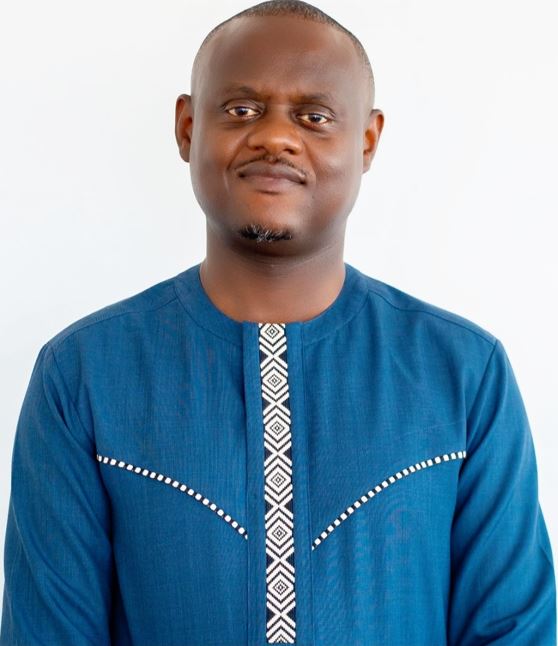
Founder and Managing Director, ADFINANCE LTD, Rwanda
Bayingana Olivier Mugabonake is a Belgian-Rwandan Citizen. He is the Founder and Managing Director of ADFINANCE LTD, a pan-African Fintech company providing IT solutions for finance in 7 countries.
Olivier is a Member of the Board of the Rwanda ICT Chamber, a Member of the Africa Fintech Network Board of Directors and the current Chairperson of the Rwanda Fintech Association. In addition, Olivier is the Chairperson of the BOD and legal representative of The OEBP (Organisation pour l'enseignement à programmes belges) also known as Ecole Belge de Kigali.
Christine MUKANTWALI Dr.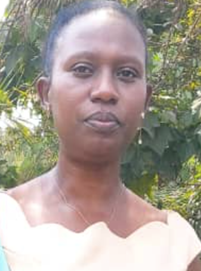
Chargée de recherche, Organisation des Nations unies pour l'alimentation et l'agriculture (FAO), Tanzanie
Christine Mukantwali is currently a lead technical expert for food systems at the Food and Agriculture Organization of the United Nations in Rwanda. She has an extensive experience in research and extension with peer and non-peer reviewed publications in the area of value addition, nutrition and food safety. She is a senior research scientist and worked for the Rwanda Agriculture and Animal Resources Development Board for 23 years and has been also a visiting lecturer at the University of Rwanda and at the Catholic University of Rwanda where she taught nutrition courses.
Christine has served on technical and leadership positions for different institutions, including but not limited to, the Federation of African Nutrition Societies, Rwanda Nutrition Society, The Sun Alliance Rwanda, Catholic University of Rwanda and the Rwanda Foods and Drugs Authority and the Rwanda Standards Boards. Christine holds a PhD in Food Science and Technology from Sokoine university of Agriculture. She also holds a Master and BSc Honours in Human Nutrition from University of Kwa Zulu Natal, South Africa.
Noel MUHAWENIMANA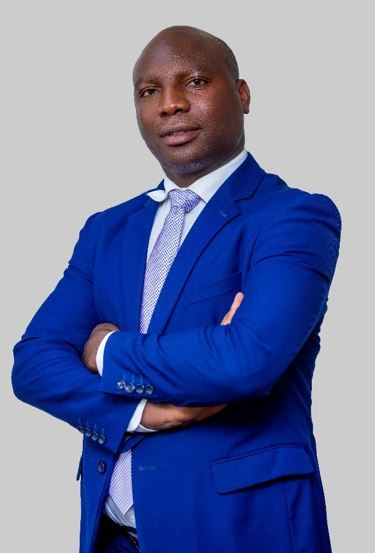
Managing Director of Umutanguha Finance Company (UFC), Rwanda
Noel Muhawenimana is a holder of Master’s and Bachelor’s Degrees in Accounting from University of Rwanda, College of Business and Economics. He has more than 13 years of experience in various senior positions in the banking and microfinance industries. Since August 2021, he is Chief Executive Officer of Umutanguha Finance Company (UFC) Plc., a microfinance public company.
Prior to joining UFC Plc Umutanguha Finance Company Plc, Noel occupied several positions in the business departments of commercial banks such as Bank of Africa Rwanda Plc, where he occupied several positions such as Executive Head of Digital and Business Development where he managed the Bank’s strategic business to ensure business integrity, enable profitable and sustainable growth and increase the efficiency and quality of the business.
Richard MUNANG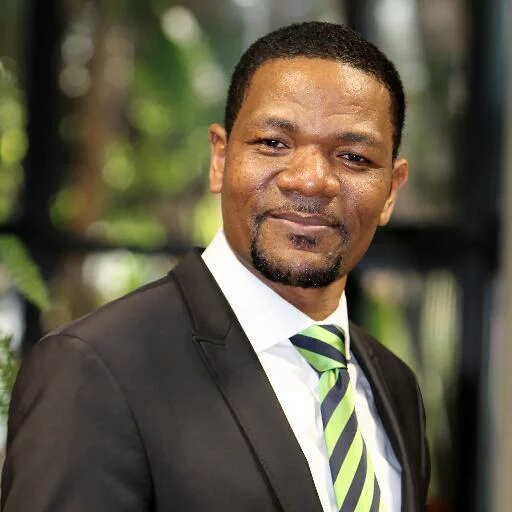
Africa Regional Climate Change Coordinator at the UN Environment Programme (UNEP), Kenya
Dr. Richard Munang is currently the Africa Regional Climate Change Coordinator at the UN Environment Programme (UNEP). He is responsible for guiding the implementation of UNEP’s climate resilient development strategy at national and regional levels in a manner that ensures human wellbeing through coordinating diverse projects in adaptation and mitigation.
Dr. Munang’s experience encompasses a unique blend in programming and policy on regional and global climate change policy, environmental management, sustainable development, clean energy, resource efficiency and food security with regards to accelerated economic growth. His professional activities include supporting governments, regional institutions and non-state actors with green growth and low-carbon transition, and participatory engagement of multiple stakeholders including the private sector, young people, women and minority groups.
He founded a youth mentorship programme ‘Innovative volunteerism’ to inspire young people to turn their passion into profit through climate action enterprises. He has won many awards, including the Africa Green Champion Award 2020, the African Environmental Hero Award 2016, as well as the UNEP 2016 highest recognition, the Baobab award for Programme Innovation. Dr. Munang has participated in a wide variety of research projects and has published over 500 articles in international peer-reviewed journals and magazines. Dr. Munang is the author of the book ‘Making Africa work through the Power of Innovative Volunteerism’. Dr. Munang holds a PhD in Environmental Change and Policy from the University of Nottingham, United Kingdom, and an Executive Certificate in Climate Change and Energy Policy from Harvard University, Kennedy School of Government.
Kimanthi MUTUA
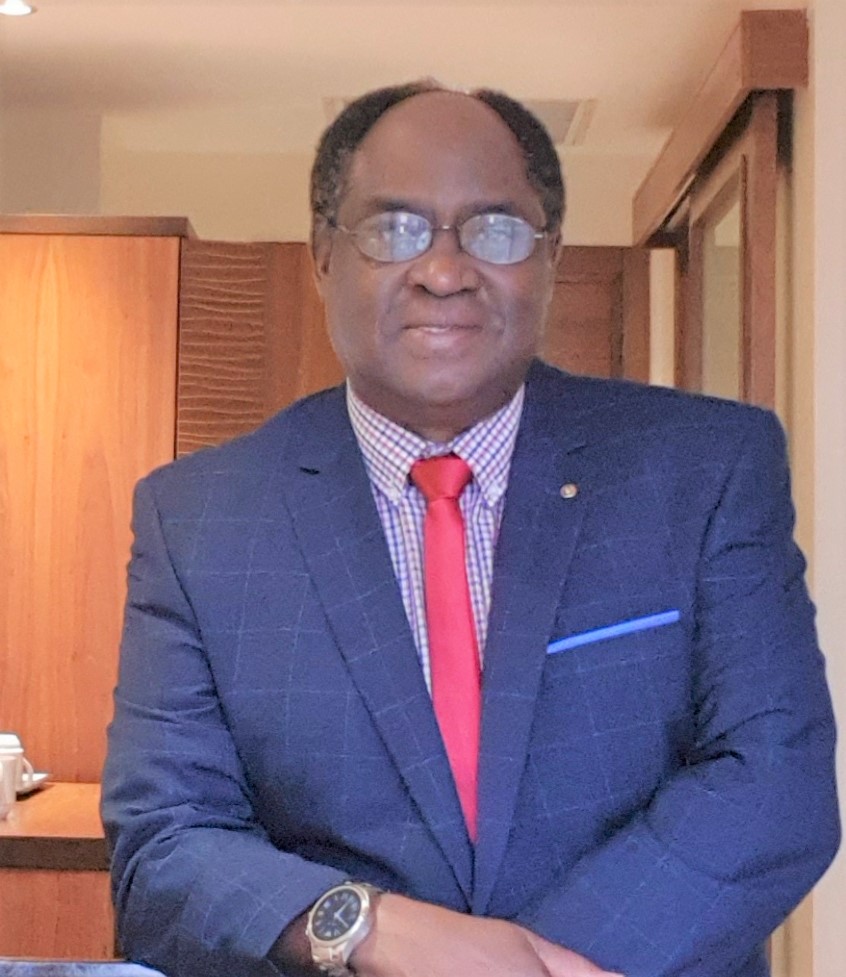 Founder of K-Rep Bank Limited and Chairman of ECLOF International, Kenya
Founder of K-Rep Bank Limited and Chairman of ECLOF International, Kenya
Kimanthi Mutua is currently the Director of the K-Rep Group; Sidian Bank, PAMICA_CIDR Association, MAIN Network, as well as Board Chair of ECLOF International (Geneva) and PAMIGA FINANCE S.A. (Paris).
Mr. Mutua founded K-Rep Bank (now Sidian Bank) in 1999, the first non-governmental microfinance institution to transform into a regulated commercial bank specializing in microfinance in Africa. He served as the Managing Director of Bank from 1999, until his retirement in 2010. Previously, he served as board member of Centenary Bank Uganda (2005 to 2017) and Capital Markets Authority in Kenya (1996-2002).
He has conducted several training sessions and facilitated workshops for microfinance institutions, banks and regulatory bodies both globally and in Africa on various microfinance/ financial inclusion topics. He has also led teams of consultants on diverse assignments such as transformation, re-organization of banks as well as microfinance institution and capacity building.
Keynote 3 (plenary): Keynote Address: Stakeholder guidance for inclusive finance sector resilience and achieving the SDGs in Africa: what future agenda?
Wednesday 20 October, 16.30 - 17.00
Raïssa MUYANGO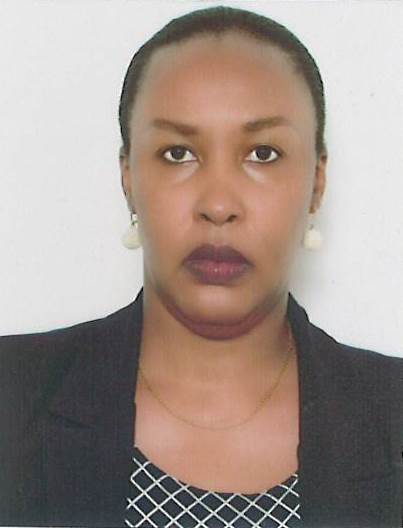
Managing Director, COPEDU PLC, Rwanda
Since December 2019, Raissa Muyango works as the Managing Director in COPEDU PLC, a leading microfinance company. Raissa Muyango is a banker by career with 16 years in the financial sector. She previously worked for a fund management company, GroFin Rwanda, as a Senior Investment Manager where she contributed to the SME portfolio by providing loans and business support to entrepreneurs.
She also worked with three commercial banks where she occupied different positions in credit and business departments, such as analyst, Account Manager, Country Risk Manager and Head of SME Finance. These positions gave her a strong experience in finance and in promoting different types of businesses while mitigating the associated risks as much as possible. She holds a Bachelor’s degree in Economics and a Master’s degree in Strategic Management.
N
Fatoumata Niang NIOX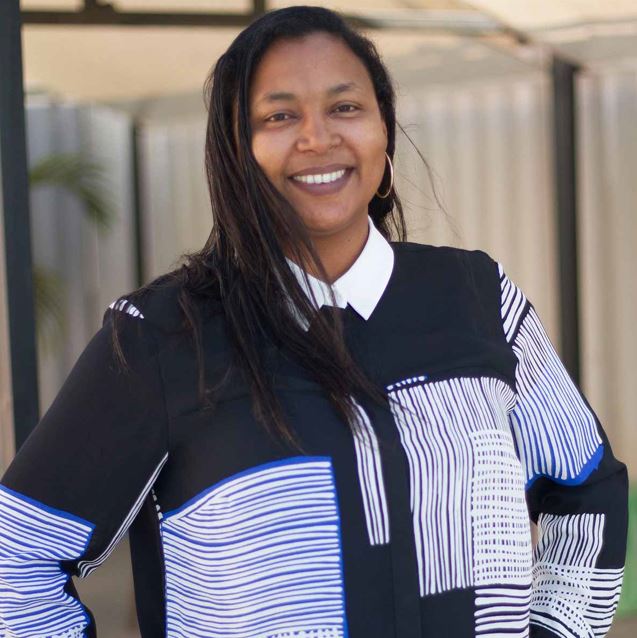
Executive Director Jokkolabs, Senegal
As a committed citizen, Fatoumata has been involved in generating opportunities in response to illegal youth migration in Senegal, Morocco, Côte d’Ivoire and Cape Verde. For the past five years, she has been the Executive Director of Jokkolabs, a network of innovation spaces in eight countries. She contributes to the development and upscaling of the initiative while supporting public policy, open innovation and incubation programmes.
Fatoumata is Managing Director of Global Entrepreneuship Week for Senegal, the world's largest network of entrepreneurs. Fatoumata is also the West African coordinator of Africa Code Week and the Francophone representative of the Afrilabs network (174 tech hubs in Africa). Fatoumata is a member of the I4policy Task Force and co-founded the startup act for Senegal.
She is also co-founder of Women Incub, an initiative that supports the empowerment of illiterate women and school dropouts. On 1 February, she inaugurated Hub Nord, the first innovation space dedicated to women and young people in the northern part of Senegal.
Esther NJOROGE
MASSIF Fund Manager, FMO, Netherlands
Esther Njoroge works at FMO, the Dutch entrepreneurial and development bank. She co-manages MASSIF, which is FMO’s financial inclusion fund, with a committed portfolio of over EUR 500M and over 100 investments across 40+ countries. FMO manages the MASSIF fund on behalf of the Dutch government. MASSIF reaches out to end-beneficiaries through financing local financial intermediaries and institutions that can contribute to their development. Since 2016, MASSIF has been operating under the Next frontier strategy based on which the fund invests according to 4 themes: i) The unbanked/ fragile states, ii) Agricultural and rural livelihoods, iii) Women, youth and migrants and iv) Innovations in inclusive businesses.
Prior to joining FMO, Esther held positions in Standard Chartered Bank in Kenya, working with ultra high net worth clients and as well as managing credit risk in the secured portfolio across seven markets in Africa. She also has experience working in investment banking as a research analyst. Esther was awarded the CFA Charter in 2019. She holds a bachelor’s degree in Financial Engineering from JKUAT (Kenya) and a Master’s in Economics and Strategy in Emerging Markets from Maastricht University (Netherlands).
Livingstone NKUUSI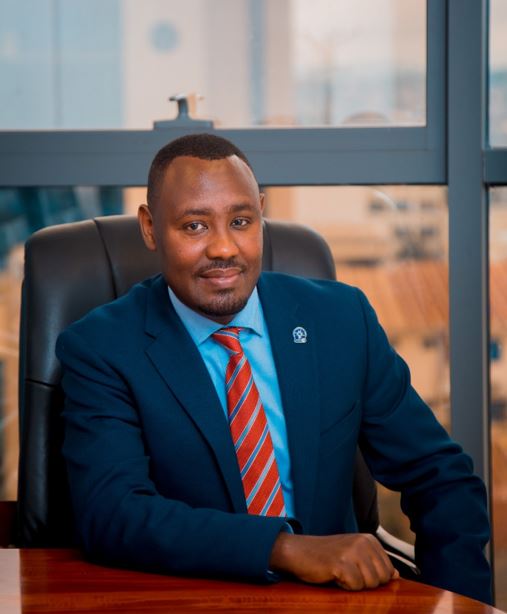
Program lead MSME Finance, Mastercard Foundation, Rwanda
Livingstone is currently the Program lead, MSME Finance at the Mastercard Foundation where he works with different partners to develop and deploy affordable and accessible finance for MSMEs. He has over 14 years of experience in MSME and development financing. Prior to joining the foundation, Livingstone was the Head of Branches Coordination at the Business development Fund in Rwanda and the SME development senior officer at the Rwanda development board where he was overseeing the implementation of the national SME development policy.
Livingstone has been a key player in the SME and entrepreneurship ecosystem in Rwanda and developed different alternative financing vehicles like quasi equity, the youth in agribusiness facility for graduates, a startup loan facility, a leasing and micro leasing facility and mobilised resources for the credit guarantee and sacco refinancing,
Livingstone was the founder of get in the ring investment battle Rwanda chapter for SME and the co-host of the East African growing SMEs conferences, Livingstone is passionate about startups and entrepreneurship financing. Livingstone holds a Master of Business Administration in project management from Oklahoma Christian University (USA), a Postgraduate Diploma in human resource management and development from Uganda management institute and an honor bachelor’s degree in social sciences from Makerere University in Uganda.
Rogers Augustine NWOKE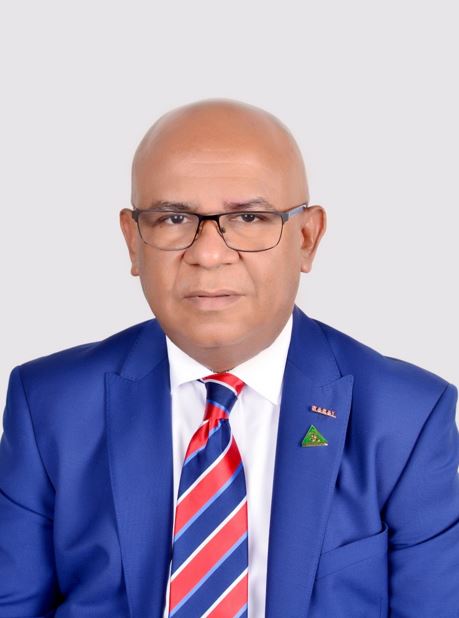
Board Member of the Nigeria Microfinance Platform (NMP), Nigeria
Mr. Rogers Augustine Nwoke is a seasoned Banker with over 25 years’ experience in the financial services industry in Nigeria covering investment, retail, commercial and microfinance banking across 5 top Nigerian banks. He is the founding Managing Director/CEO of HASAL Microfinance Bank Limited, a state-licensed microfinance bank established in 2008 with an asset base in excess of $15m and operating out of 18 locations in Abuja. Rogers holds a Bachelor’s Degree in Accounting from University of Nigeria, and an MBA from Warwick Business School, University of Warwick, England, where his research interest focused on microfinance models and entrepreneurship development.
He is a Fellow (FCA) of the Institute of Chartered Accountants of Nigeria (ICAN), Honorary Senior Member (HCIB) and Certified Microfinance Banker (MCIB) of the Chartered Institute of Bankers of Nigeria (CIBN). Mr. Nwoke is an International Certified Microfinance Expert (iCME) and International Certified SME Finance Expert (iCSME) from the Frankfurt School of Finance & Management, Germany. He is also an Alumnus of the Harvard Business School Action Program on Strategic Leadership in Microfinance.
Mr. Nwoke was elected the National President of the National Association of Microfinance Banks (NAMB) – the apex institutions housing all registered microfinance banks in Nigeria, a position he held from 2017 to 2020. He is currently a Board Member of the Nigeria Microfinance Platform (NMP) and a Microfinance Long-Term Expert for AFOS Foundation, Nigeria.
Johanna NYMAN (online speaker)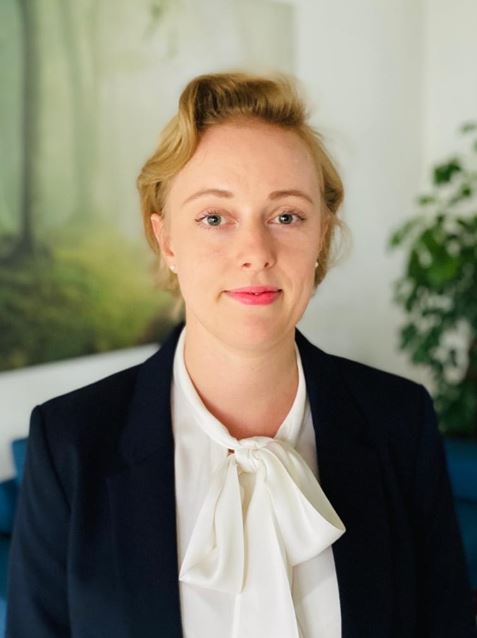
Head of Inclusive Green Finance at Alliance for Financial Inclusion (AFI), Malaysia
Johanna Nyman is Head of Inclusive Green Finance at the Alliance for Financial Inclusion, a global network of policymakers and regulators working towards inclusive finance for all.
She supports AFI’s members in developing and implementing policies and regulatory reform to advance inclusive green finance. This is an emerging policy area aiming to empower those at the base of the economic pyramid to build resilience and mitigate environmental degradation through financial inclusion. She works directly with the 49 AFI members in the Inclusive Green Finance Working Group and leads the development of this policy area.
Prior to joining AFI, Johanna worked on global climate policy, green finance and climate security in the European Union. Her educational background is in environmental sciences and climate policy and she has published several scientific articles on modelling potential climate change impacts in the Arctic tundra.
O
Francis OBIRIKORANG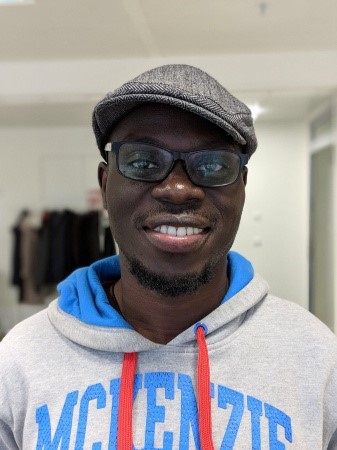
CEO and co-founder of AgroCenta, Ghana
Francis Obirikorang is the CEO/Co-founder of AgroCenta. A graduate from Kwame Nkrumah University of Science and Technology (KNUST) and majored in Materials Engineering, Francis has over 10 years’ experience in software development life cycle, software quality assurance, product development & innovations, business development and marketing. Francis has worked in key software development companies in Ghana, notably TXT Ghana and CoreNett Limited, and was part of the initial core team that transformed Esoko, a market information systems platform that delivers market information to smallholder farmers via SMS, from an idea into a fully functional product.
Francis has also worked in other start-ups, notably Swappaholics, an interactive platform that connects individuals and businesses in a social setting to exchange products and services without the need for money. His passion for innovation and technology is a critical game changer in the agricultural landscape in Ghana and Africa at large, Francis leads the AgroCenta team in providing last mile market access for smallholder farmers, removing exploitative middlemen and ultimately improving the financial livelihood of smallholder farmers through fair trade.
Yombo ODANOU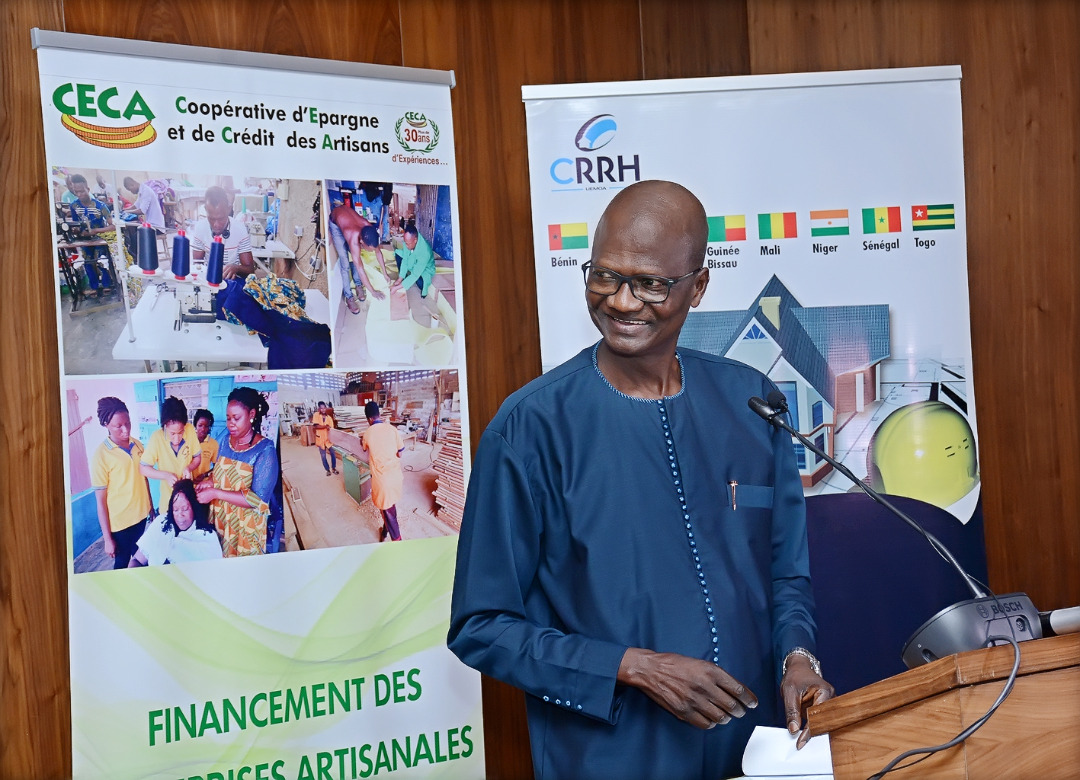
General Manager of the Cooperative d'Epargne et de Crédit des Artisans (CECA) and President of APSFD-Togo, Togo
Yombo ODANOU has more than 25 years of professional experience in microfinance.
He holds a Master's degree in business management, a degree in higher studies in banking from Paris and a professional Master's degree in microfinance.
In Togo since 2003, he was the Director General of the Coopérative d'Epargne et de Crédit des Artisans (CECA) and President of APSFD-TOGO from 2015 to 2018. In this capacity, he was a member of the National Credit Council within the BCEAO for Togo and remains its Honorary President.
Regionally and in Africa, he is the current President of the Microfinance Africain Institutions Network and one of the Honorary Presidents of the Professional Association of Decentralized Financial Systems of UEMOA. Yombo is also the very last President of the Africain Microfinance Transparency Forum (AMT).
Abdou-Rasmané OUEDRAOGO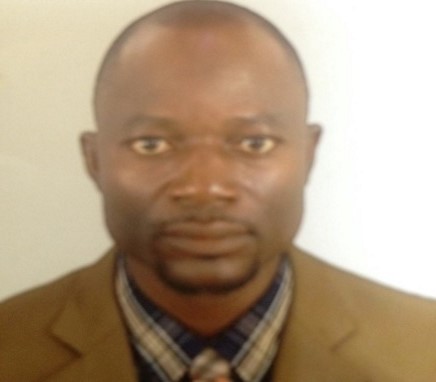
Managing Director of UBTEC/Naam, Burkina Faso
Mr. OUEDRAOGO Abdou-Rasmané holds a Master's degree in Management of Microfinance Institutions and a Master's degree in Economics and Management of Enterprises and Organisations from the University of Ouagadougou. He is currently the General Manager of UBTEC/Naam, a microfinance institution based in the north of Burkina-Faso. In parallel to his function as General Manager, Mr. OUEDRAOGO has been Programme Officer for the project ‘Transition towards a Peasant Agro-ecology for Food Sovereignty’ (TAPSA) since 2016, which is financed by Solidarité Internationale pour le Développement et l’Investissement (SIDI), the Catholic Committee for the fight against Hunger and for Development (CCFD) and the French Development Agency (AFD). Mr Ouedraogo was Secretary General of the Professional Association of Decentralised Financial Systems of Burkina Faso (AP/SFD-BF) from 2017 to March 2021.
P
Jean-Louis PERRIER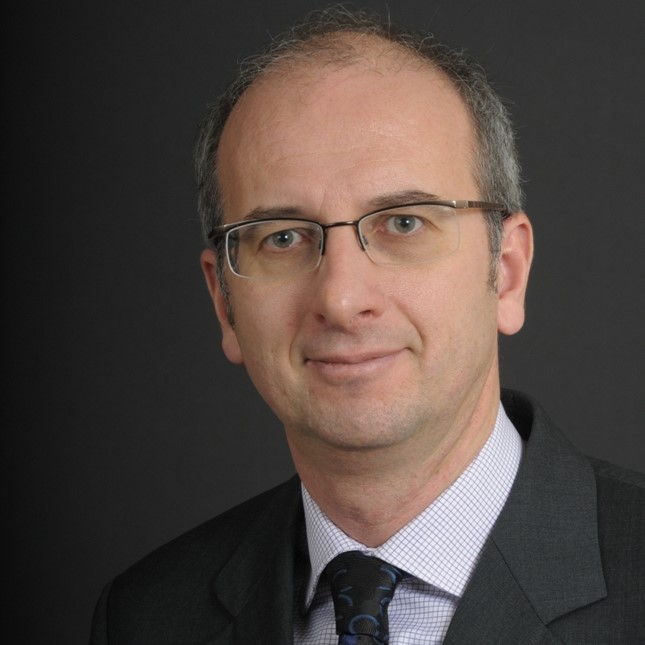
Africa Cybersecurity Resource Center (ACRC) Programme Director and Co-founder of Suricate Solutions, Luxembourg
Jean-Louis Perrier holds a MSc in Electronic Engineering and Computer Science, and a MBA from HEC Paris. He has extensive experience in ICT, security, fraud, and risk management, as well as of the financial sector, digital financial services and fintech.
Building on the lessons learned as co-founder of Suricate Solutions, a company dedicated to cyber security in Africa that was launched in Senegal in 2017 as the first mutualized cyber security operation centre for inclusive finance in west africa, Jean-Louis is now the Program Director of the Africa Cybersecurity Resource Centre for financial inclusion (ACRC). ACRC is a unique, non-profit, public-private partnership consortium dedicated to providing innovative, affordable and quality cybersecurity services to financial service providers, fintechs and central banks in Africa.
George PETTY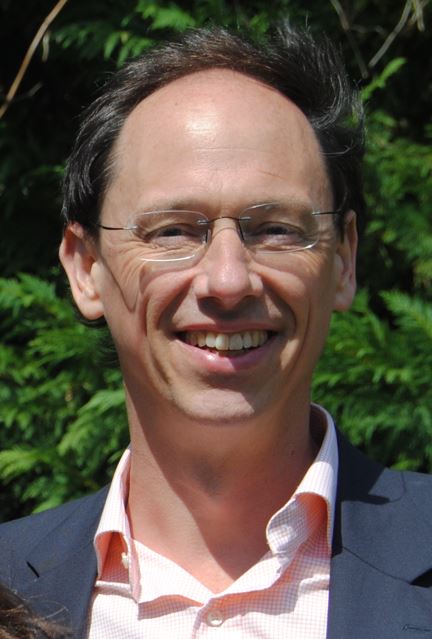
Managing Director of Venture South International, Switzerland
George Petty founded Venture South International in 2008 as a company which lends to micro, small and medium enterprises through subsidiary companies in Colombia and the Philippines. It has since expanded to niche loan products in Kenya and Uganda with solar receivable financing and warehouse receipt loans. This “missing middle” of finance is where businesses create jobs, expand the economy, pay taxes and broaden the middle class. Prior to creating VS, George spent 12 years as Program Executive of ECLOF, a global microfinance organization based in Geneva, Switzerland. Prior to working for ECLOF, he was an Assistant Vice President for March & McLennan insurance brokers in New York and London.
R
Natalia REALPE CARRILLO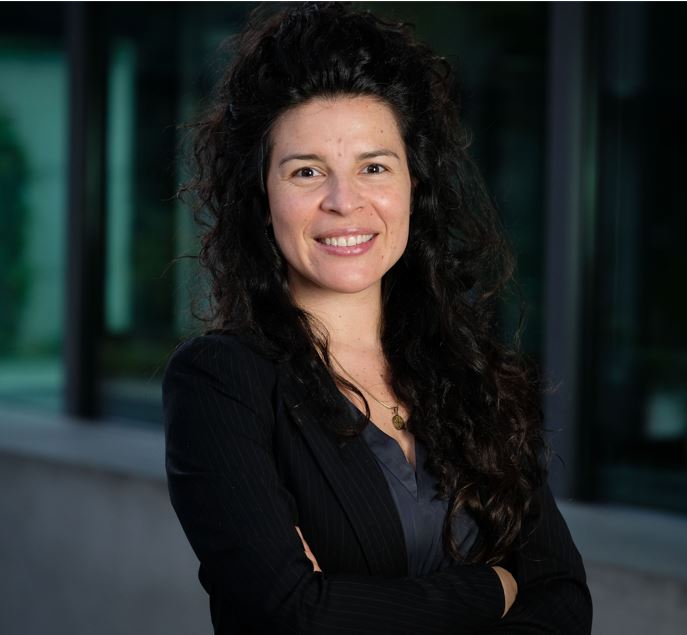
CEO of HEDERA / Klaus Töpfer Sustainability Fellow at IASS Potsdam, Germany
Dr.-Ing. Natalia Realpe Carrillo is Klaus Töpfer Sustainability Fellow from IASS, director of HEDERA Sustainable Solutions GmbH, co-head of the e-MFP Green Inclusive & Climate Smart Finance Action Group and guest lecturer at the Pan African University Institute of Water and Energy Sciences including Climate Change (PAUWES) and at TU Berlin Campus El Gouna.
Natalia holds a PhD Degree in access to energy from the Energy Engineering Institute at TU Berlin. She has worked in the green microfinance sector as senior project manager and energy consultant for over a decade, supporting institutions in enabling access to clean energy in rural remote regions, managing projects in Latin America, Central Asia and Africa.
Corinne RIQUET-BAMBA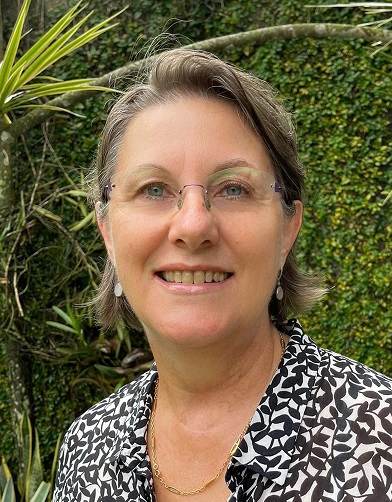
Independent Financial Sector Consultant, CGAP, Côte d'Ivoire
Based in Côte d'Ivoire, Corinne Riquet-Bamba is a senior financial sector specialist. After initially focusing her work on microfinance and financial inclusion, she has specialized in the field of digital finance since 2008 as part of her duties at CGAP. She worked on the development of the branchless banking and digital finance ecosystem in the WAEMU. She coordinated and contributed to several studies and surveys aimed at understanding the supply and demand of digital financial services among low-income and financially excluded people. She also contributed to diagnostic studies on regional and national digital financial services and regulatory frameworks.
In addition, she supervised the implementation of innovative digital finance pilot projects led by providers, microfinance institutions and MNOs. She is currently focusing on protecting consumers of digital financial services, the development of agent networks in rural areas and the digitisation of governmental social handouts.
Since 2001, Corinne Riquet-Bamba is also an independent consultant working on various topics including ex-ante and ex-post evaluations of projects, the design of financial services in rural areas and the evaluation and definition of national microfinance strategies, as well as digital finance strategies. She holds a Master 2 in development economics from CERDI, University of Clermont-Ferrand, France.
Eric RWIGAMBA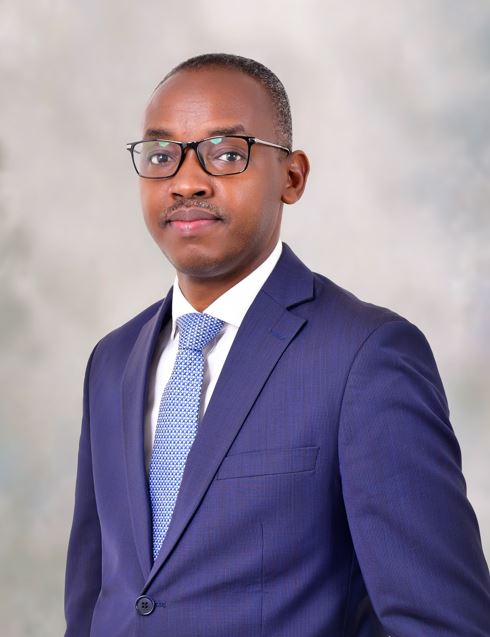
Director General of Financial Sector Development at the Rwandan Ministry of Finance and Economic Planning, Rwanda
Eric Rwigamba currently serves as a Director General of Financial Sector Development at the Ministry of Finance and Economic Planning. He is a Board member of the Development Bank of Rwanda and Chair of the credit committee, Board member and vice chair of the Capital Market Authority, Advisory Board member of the Financial Intelligence Unit (chaired by the Governor of the Central Bank of Rwanda), Chair of the National Advisory committee for the Deposit Guarantee Fund and Alternate board member of Africa Export- import Bank (AFREXIMBANK).
Eric has 18 years’ experience in public and corporate finance, including in the development and implementation of financial sector policies, strategies and legislation in areas such as banking, insurance, pension (including for non-salaried workforce), microfinance and SACCOs, capital market development, commodities exchange, leasing, payment systems, financial inclusion and financial education and capacity development. He also has experience in corporate business planning, budgeting and control, SME financing, auditing, investigation as well as in due diligence. Eric hold a Masters of Business Administration, MBA Finance from Oklahoma Christian University – USA; Bachelor of Commerce/finance from Makerere University - Kampala, Uganda.
John RWIRAHIRA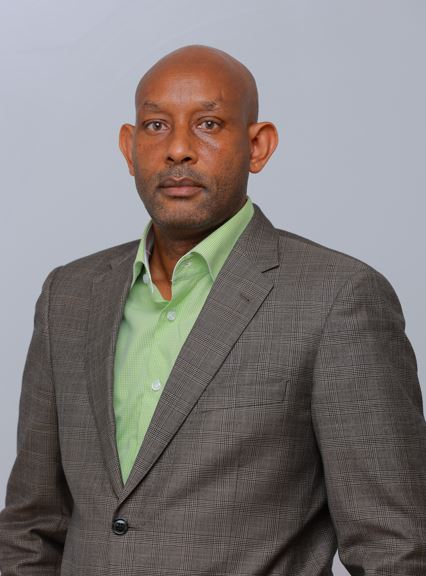
In charge of Research and Knowledge Management at Access to Finance Rwanda, Rwanda
John Rwirahira is an economist and a policy analyst and he has occupied senior research positions in different research organisations. He mainly focused on pro-poor policy design and implementation in key sectors such as agriculture, social protection, gender and economic empowerment as well as access to finance for marginalised groups. At Access to Finance Rwanda, Mr John Rwirahira is responsible for designing and overseeing the financial sector and market research activities and for generating learnings that support strategic programming and policy dialogues on accelerating access to finance, especially for disadvantaged members of the Rwanda community.
S
Emanuele SANTI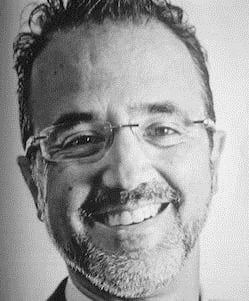
Fund Manager and Head of Agribusiness, Bamboo Capital Partners, Luxembourg
Emanuele Santi is Fund Manager of the Agri-Business Capital Fund and Head of Agribusiness at Bamboo Capital Partners. At SAM, he will present the recently established Agri-Business Capital Fund, which has been designed to address the financing gap facing smallholder farmers and rural SMEs via a set of financial products, including loans and equity.
Prior to joining Bamboo Capital Partners, Emanuele spent 15 years at the World Bank and the African Development Bank. He pioneered new programmes and instruments to support entrepreneurship and innovation, such as Souk Attanmia, the largest mobilisation of partners to support social entrepreneurship in Tunisia in the aftermath of the Arab Spring, and Boost Africa, a blended finance vehicle enabling the market emergence of innovative forms of financing in the continent.
He also founded Afrilanthropy, a platform connecting African social enterprises with a wide variety of venture philanthropists, foundations and impact funds. He holds a PHD in Development Studies from the University of Trieste, an MA in Economics from the College of Europe in Bruges and a Harvard certificate in Public Financial Management.
Tamsin SCURFIELD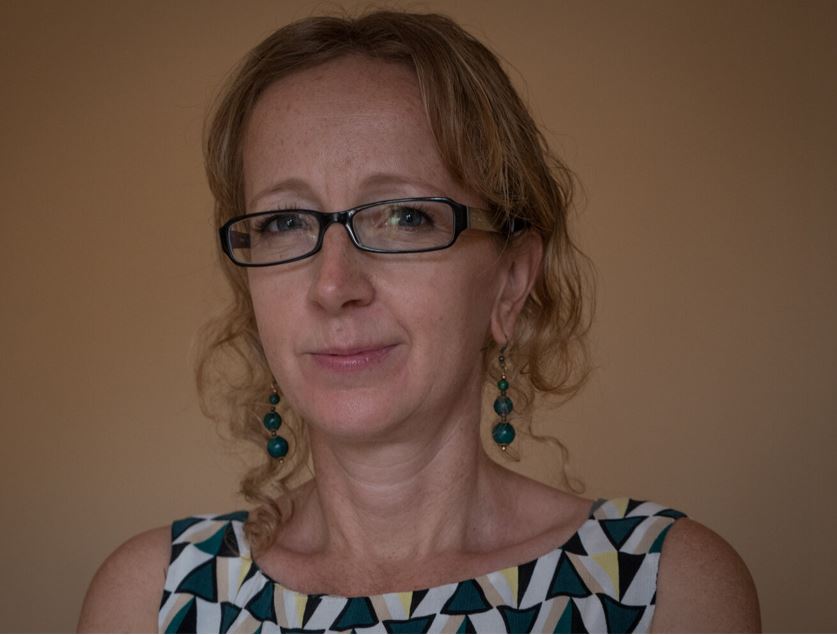
In-country and regional expert, Opportunity International, in-country and regional expert, Uganda
Tamsin Scurfield has been living and working in Africa since 2006. First with a grassroots community development organisation, then she moved into the humanitarian sector during the Horn of Africa Famine Response in 2011, supporting the relief efforts of Somali refugees.
Since 2015, she has worked for Opportunity International as both an in-country and regional resource, based out of Uganda. Her key role is to identify business and new partnerships to enhance the impact and reach of Opportunity across the region. She provides coordination and operational support for agriculture, youth, disability and refugee projects. She is also leading on AgFinance’s gender strategy to ensure a gender lens is incorporated into Opportunities’ programs and all processes are designed with women in mind.
Her current portfolio includes refugee financial inclusion to promote the development of self-reliant, integrated, financially included refugee and host communities in Uganda. In this role, she leads on strategic support, partnership management and integrating learnings into programming.
Her other main area of focus is developing and testing innovative savings and credits products, alongside of business, agronomy and entrepreneurship training for rural women and youth.
Diéry SENE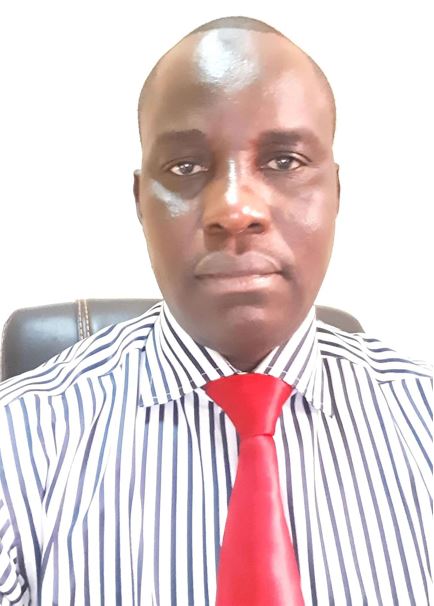
Executive Director of Fansoto, Senegal
Diery Sene, a Senegalese national, holds a Master's degree in business management from UCAD and a DESS in banking and finance. He has more than 20 years of experience in microfinance and economic and social development.
Diery participated in several training courses on microfinance and on specific themes (GPS, CGAP courses; CAPAF etc.). He has held several managerial positions and has participated and/or conducted socio-economic impact studies/assessments.
Thanks to his extensive experience, Diery Sene had the honour to participate in the creation of a new social MFI called FANSOTO in Senegal, of which he is the Executive Director.
Hedwig SIEWERTSEN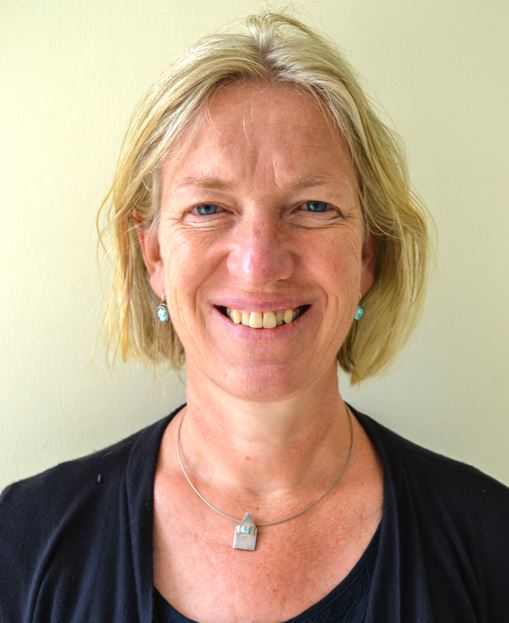
Head Inclusive Finance, AGRA (Alliance for Green Revolution in Africa), Kenya
Hedwig Siewertsen is responsible for designing and implementing AGRA’s inclusive finance strategy. Financial services are key in transforming agriculture from a solitary struggle to survive into a business that thrives. AGRA designs and deploys blended finance instruments, value chain finance and digital finance products, technical assistance funds and acceleration funds to make financial services accessible and affordable to agricultural SMEs and smallholder farmers in food crops in 11 African countries.
Prior to coming to AGRA, Hedwig spent four years as CEO of a USD 100 million single family office impact fund, DOB equity, which invests in SMEs in East Africa. Prior to that, she was Deputy Director and Senior Consultant at Triodos Facet (now Palladium) for twelve years, a consulting firm specialised in entrepreneurship development and financial service delivery to MSMEs in emerging markets. In that capacity, she worked in 25 African countries to design, monitor, support and evaluate enterprise support programmes with a focus on financial service delivery. She started her career as an associate expert for the UN in Madagascar and Tanzania. She holds a B.Sc. in Tropical Agriculture and a Masters’ degree in Econometrics.
Tripti SINGH
Head of the 60 Decibels office in India
Tripti Singh is the head of the 60 Decibels office in India and leads their work in the Good Jobs sector. Before 60 Decibels, Tripti was the Head of Business Intelligence and Strategy for an Ed-Tech social enterprise in Mumbai. She also worked as an economic consultant with the Analysis Group in Boston and Washington D.C. Tripti has an undergraduate degree (Economics and International Global Studies) and a Master's degree (International Economics and Finance) from Brandeis University, Boston.
Mathieu SOGLONOU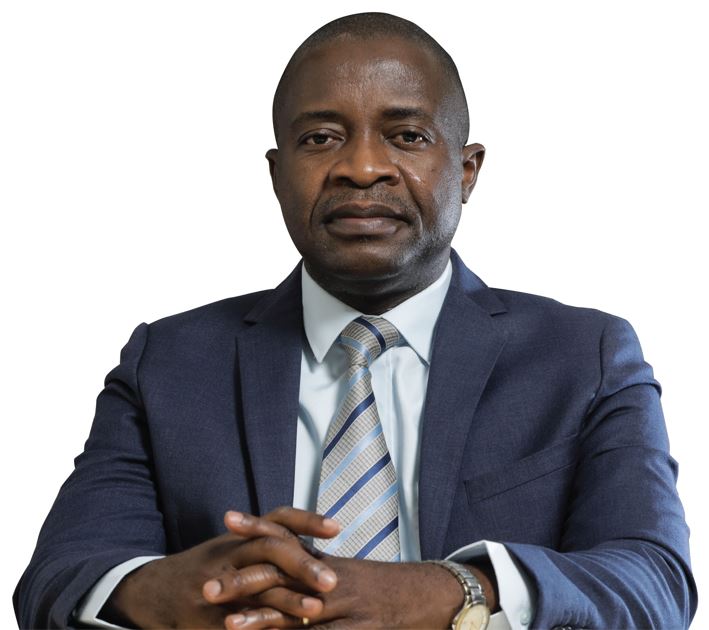
Managind Director of the Confédération des Institutions Financières d’Afrique de l’Ouest (CIF), Burkina Faso
Mathieu SOGLONOU is the Managing Director of the "Confédération des Institutions Financières d’Afrique de l’Ouest (CIF-AO)". Mathieu has over 20 years of experience in international development for reducing poverty and inequality, linked to national priorities with a focus on financial inclusion, agriculture, young people, women’s and girls’ economic empowerment, digitalisation and clean energy.
Mathieu has strong track record in strategic advice and leading partnerships with governments, parliaments, central banks and regional entities as well as in project and programme management, especially in complex and demanding development situations in Africa.
Before the CIF-AO, Mathieu was successively Regional Technical Advisor and the Regional Coordinator of the United Nations Capital Development Fund (UNCDF) in West and Central Africa; Director of the Access to Financial Services Project of the Millennium Account Program (MCA-Benin), and Director of the National Microfinance Association of Benin (ALAFIA Consortium).
Mathieu is providing pro-bono services as Senior Private Sector Advisor to the African Renaissance and Diaspora Network Inc. (ARDN) and is s Special Advisor of the West Africa Power and Energy Cooperation Conference (WAPECC). Mathieu holds a Post-Graduate Degree of “Université d’Abomey-Calavi” in Project Management and Local Development. Currently he is pursuing a PhD in Business Diplomacy.
Ivan James SSETTIMBA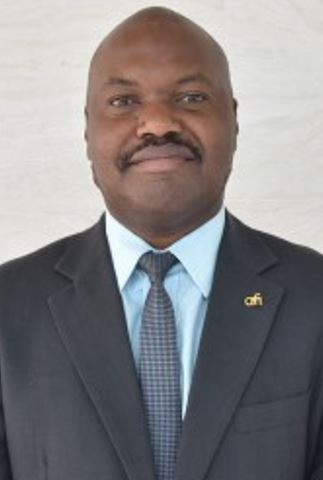
Head, Africa Regional Office at Alliance of Financial Inclusion (AFI), Côte d'Ivoire
Mr. Ssettimba is a highly experienced financial sector specialist with 18 years' experience, and extensive practical knowledge in payment systems, digital financial services, policy formulation relating to financial consumer protection, financial literacy, financial inclusion data, regulation and supervision of mobile money services, oversight and operation of payment systems and design and implementation of financial inclusion initiatives. Mr. Ssettimba is skilled in project management, pipeline development, investment appraisal, risk management, consultant management, and monitoring and results measurement. He is currently responsible for managing the Alliance for Financial Inclusion (AFI) Regional Office for Africa Region. Prior to this he held several positions at the Bank of Uganda, the last being Deputy Director in charge of the Financial Inclusion Division. He holds a Master’s degree in Business Administration and a Bachelor’s degree in Statistics.
T
Jean Claude THETIKA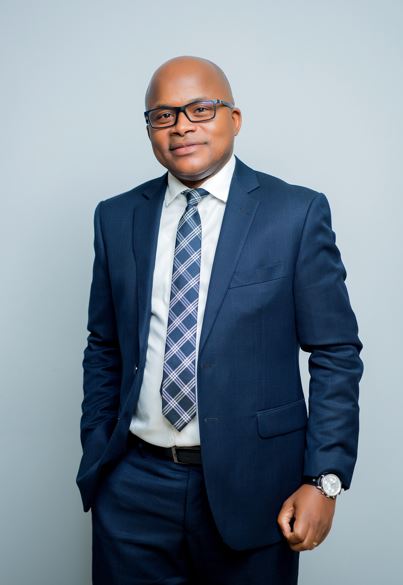
Director General, FPM ASBL, Democratic Republic of Congo
Jean Claude Thetika has nearly 20 years of experience in the financial sector, especially in banking, microfinance and MSME (Micro Small and Medium Enterprise) financing in Africa and the Caribbean. He is the current Managing Director of FPM ASBL, a fund for financial inclusion in the DRC, which he has managed since 2010. The FPM ASBL is a multi-donor fund (German KfW, UNDP and UNDCF) specialised in providing technical assistance to microfinance institutions, cooperatives and banks that serve MSMEs operating in both urban/peri-urban and rural areas.
Prior to assuming his current role at the MPF, Jean Claude conducted several assignments and studies as a senior consultant for the Frankfurt School of Finance and Management, a German-based consulting firm, on MSME financing and refinancing fund management. He also worked for the JAIDA Fund in Morocco as a senior financial analyst and in many other African and Caribbean countries where he participated in technical assistance projects for local banks. Before joining the Frankfurt School, Mr. Thetika worked for SME banks in the DRC, including at Procredit Bank where he held various managerial and operational positions in credit and credit risk management, retail banking and electronic banking. He is a trainer and a speaker in several forums on inclusion and MSME financing.
Bignon Elvis Espérat TOSSA
Executive Director of the Mutuelle pour le Développement à la Base (MDB), Benin
Since November 2016, Bignon Elvis Espérat Tossa has been in charge of the Executive management of the Mutuelle for Grassroots Development (MDB). He successfully implemented the 2016-2018 strategic recovery plan of the institution. In the past 15 years, he held various positions (cashier, branch manager, accountant and Chief Operating Officer) at PEBCo-BETHESDA (SFD). Since August 2020, he has been a member of the Board of Directors of the Professional Association of Decentralized Financial Systems of Benin.
Bignon Elvis Espérat holds a Post-graduate Degree in Banking and Financial Studies from the West African Center for Training and Banking Studies (COFEB I BCEAO, 34th promotion) in Senegal. He also holds a master's degree in Organizational Management from the National University of Benin (Abomey-Calav i) and an Ordinary National Diploma in Accounting from Catholic University of West Africa (Benin).
Ovia K. TUHAIRWE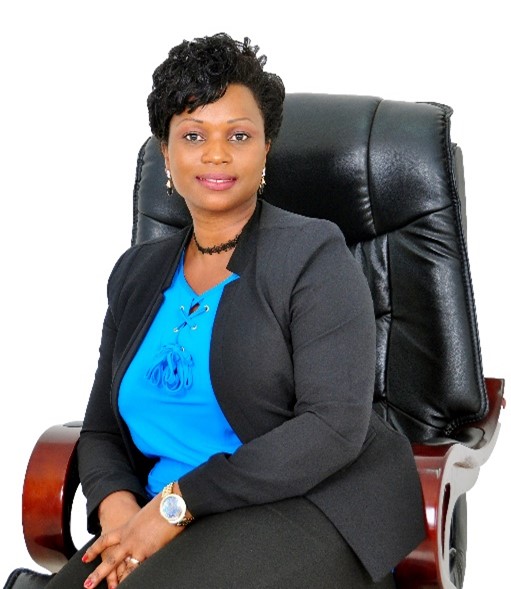
Chief Executive Officer of RADIANT YACU Ltd Microinsurance Company, Rwanda
Ovia is the Chief Executive Officer of RADIANT YACU Ltd MICROINSURANCE COMPANY, the first & only company dedicated to microinsurance in Rwanda. She is also Deputy Managing Director of RADIANT Insurance Company, the 2nd leading insurance company in the country and the mother company of RADIANT YACU. Ovia has 15 years’ experience in the insurance industry of which 5 years in microinsurance.
She holds a Master’s Degree in Business Administration from Kampala International University and a Bachelor’s Degree in Education from Makerere University, Kampala, Uganda. Ovia went through a Microinsurance Master Leadership programme in the Philippines and she is now a Microinsurance Master in the country. She is also a Certified Inclusive Insurance Trainer, by ILO under Impact Insurance initiative. Together with other stakeholders, she is playing a significant role in the design & implementation of the Rwanda National Agriculture Scheme under Livestock & Crop insurance. She is passionate about serving the underserved and unserved market segments of the population.
U
Roselyne UWAMAHORO
Program Specialist Country Lead, United Nations Capital Development Fund (UNCDF), Rwanda
For the past Fifteen years, Roselyne has been working in the financial sector, focusing on inclusive finance. She currently works as the Program Specialist-Country Lead at the United Nations Capital Development Fund (UNCDF) Rwanda, implementing the Inclusive Digital Economy Strategy “leaving no one behind in the digital era”, thereby contributing to the sustainable development goals 1,5,8 and 17.
Previously, she worked as the Head of Microfinance at Access to Finance Rwanda (AFR), a not-for-profit multi-donor funded company (DFID, MasterCard Foundation, USAID) with a mandate to stimulate financial sector development to increase access and usage of financial services through innovative financial solutions.
She also worked for the second largest commercial bank in Rwanda, I&M Bank Plc. She was also a board member of a network of six countries (Kenya, Uganda, Tanzania, Mozambique, Zambia, and Ethiopia) supporting access to finance to saving groups. Roselyne holds an MBA in Project Management from Maastricht School of Management (MsM). She is a certified trainer by the House of Training Luxembourg that funded the 1st Rwandan Academy of Finance (RAF) and an Alumni from Harvard Kennedy School on rethinking financial inclusion.
V
Bram VAN DEN BOSCH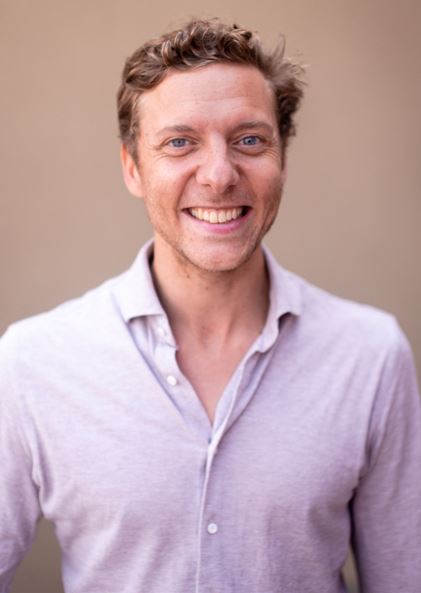
CEO and co-founder of Emata, Netherlands
Bram van den Bosch is the CEO and co-founder of digital agri lender Emata. He has over ten years of experience in finance and technology. Bram held various roles for UBS and ING Bank in investment banking and asset management in the Netherlands, Russia and Switzerland, including four years of agriculture financing in emerging markets. Prior to founding Emata, Bram was the Managing Director of the financial technology company Laboremus Uganda which creates financial technology solutions for banks in Europe and East Africa. Bram is a Dutch citizen and lives and works in Uganda.
General discussion after the keynote address (plenary session)
Wednesday 20 October, 17.00 - 17.45
Isabelle VAN GRUNDERBEECK (online speaker)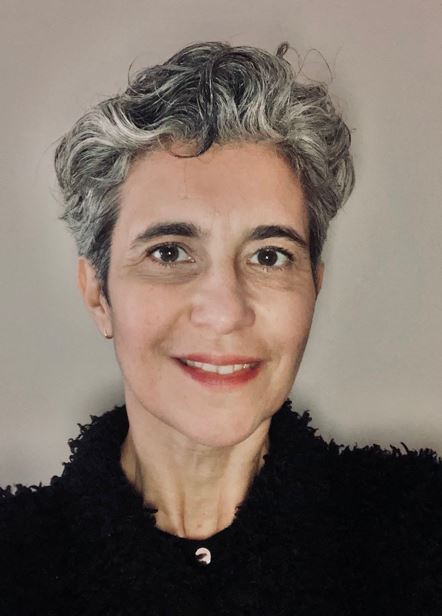
Manager of Technical Assistance Programmes in the field of financial inclusion, European Investment Bank (EIB), Luxembourg
At the European Investment Bank (EIB), Isabelle Van Grunderbeeck's team manages technical assistance programmes in the field of financial inclusion. Since 2008, she has worked at the EIB on investments in the West Africa and Maghreb regions and then as Head of the EIB Regional Representation for West Africa. Prior to that, she was an infrastructure specialist at the African Development Bank, where she led the launch of the Programme for Infrastructure Development in Africa (PIDA). Prior to working at these two institutions, she was a project manager in the telecommunications sector. A French national, she holds an engineering degree from Supélec (France) and an MBA from IMD (Switzerland).
W
Ben WALLINGFORD
Regional Manager – Anglophone Africa at MFR (MicroFinanza Rating), Kenya
Ben coordinates MFR’s operations in the anglophone Africa region and has conducted over 70 assessments in over 25 countries, including institutional ratings, social performance ratings, client protection certifications, mobile money certifications, training workshops on technical topics (e.g. pricing, transparency), and due diligence services for investors. Evaluated entities include financial service providers (FSPs), such as traditional microfinance institutions/banks (MFIs), digital FSPs, fintech companies, SME lenders, asset-financing/leasing companies, as well as mobile money operators and off-grid solar PAYGo firms. Ben, an American national, has been based in Kenya since 2011 and has worked for rating agencies specialized in inclusive finance since 2012, first for Planet Rating and now for MFR. Prior to joining the rating industry, Ben worked as Project Manager for a Kenyan MFI and as Pricing Data Analyst with US-based NGO MicroFinance Transparency.
Y
Kamal YAKUB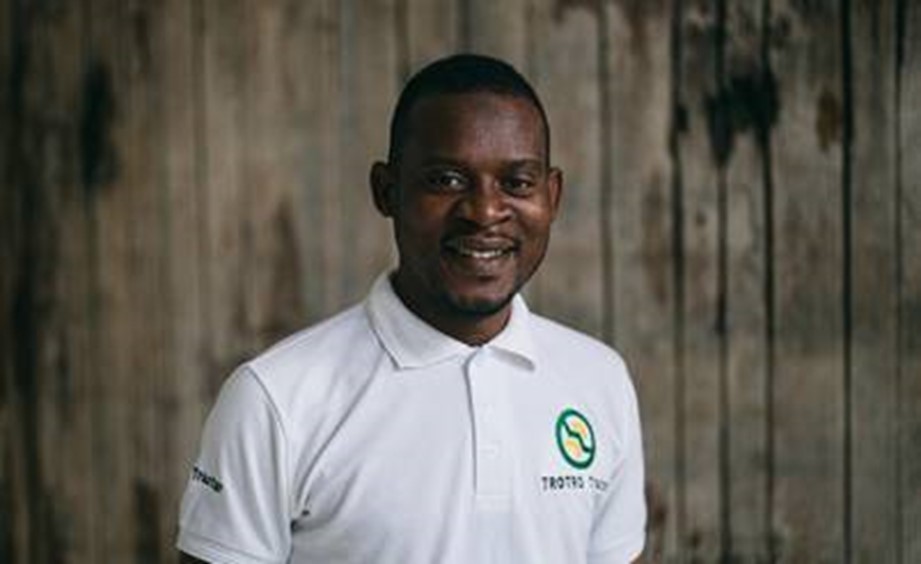
Chief Executive Officer of TROTRO Tractor Ltd, Ghana
Trotro Tractor is an agricultural technology company that connects smallholder farmers with tractors and other agricultural machinery using the feature phones. With Trotro Tractor farmers can request, prepay and schedule for tractors and agricultural machinery services using feature phones and smart phones. Tractor owners can also monitor the efficiency of their machines remotely using the Trotro Tractor specialised GPS trackers, USSD App and Mobile App.
In this short time, Kamal has led the team to win the Duapa challenge organized by the British Council, Ghana. Duapa Challenge is an early stage social innovation support competition providing seed capital, business incubation, social mandate training and exposure to the UK for an already existing and viable social enterprise. Duapa Challenge will connect leaders of viable early stage social enterprises to the leading local social impact incubator, to provide support from “idea to market”.
Kamal-Deen Yakub is a social entrepreneur and a technology enthusiast with 14 years of corporate accounting and marketing experience. He is a hands-on manager with expertise in accounting systems development, fiscal management and financial reporting, and has a proven track record of developing and implementing financial and operational controls that improve P&L scenarios and competitively position firms.